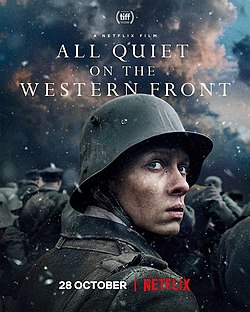
Release date: September 29, 2022 (Germany)
Director: Edward Berger
Cinematography: James Friend
Screenplay: Edward Berger, Leslie Patterson, Ian Stokell
Distributed by: Netflix
Running time 2hr and 23 minutes
Based on: All Quiet on the Western Front; by Erich Maria Remarque
Every now and then a film comes along and hits on every facet of film making conceivable, to deliver not only a powerful message but leaves viewers contemplating a particular subject matter long after the film has concluded. “All Quiet on the Western Front” is not your usual war film, but one that manages to reach deep into the recesses of the human soul to question the value and cost of life through the senseless act of war.
The title itself is a bit misleading from its predecessor, which is the original 1930 silent film that saw 6 different versions and releases with sound adaptation added which was based on the literary masterpiece. This current film was released in September 29th 2022 and is a cut above the rest as far as war films go.
Many people might argue the biggest casualty of war is the innocent people or the casual observer forced to deal with its catastrophes, however the correct answer is that it is always the environment and every thing in it. That much is true as we are introduced to the opening shots of a pristine peaceful forest where we get a brief glimpse of a Fox den and a baby fox sucking milk from its mother when suddenly its attention is interrupted by a distant rumbling sound acting as a disturbance. The baby fox looks up in curiosity as the camera pans upwards into the trees, the skies and takes us to the source of such sounds. Viewers are taken to far away distant pastures, scanning over the trees of otherwise other peaceful forests that eventually leads us to a war in progress.


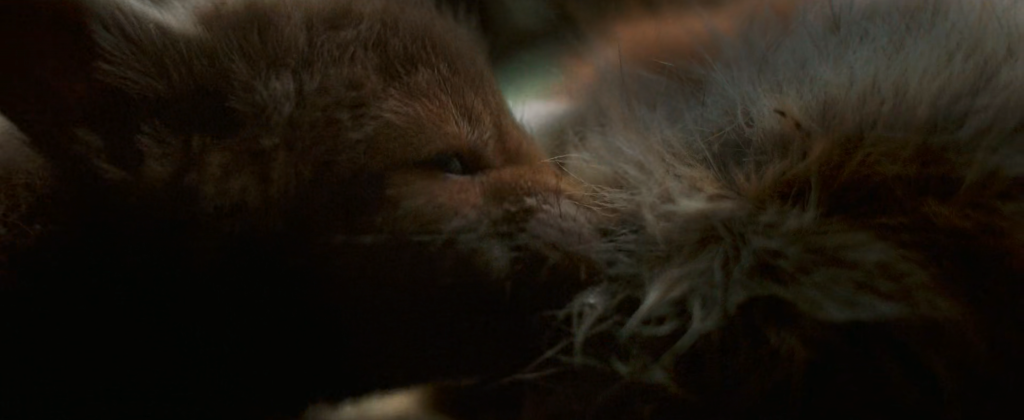
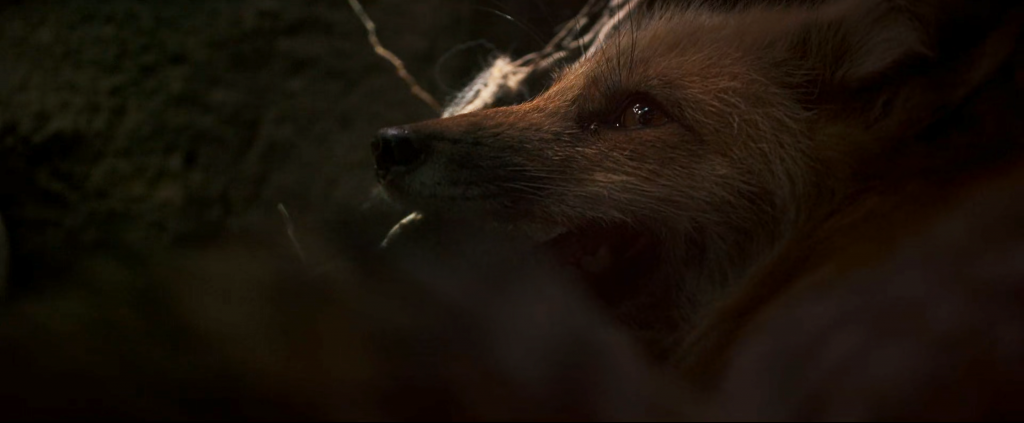

Revealing a desolate landscape of destroyed trees, bombed out craters filled with water and muddy landscapes littered with barbwire of broken fence posts surrounded by landmines and dug out trenches; is the scene where chaos of war ensues depicting images of hell that humans created for themselves.
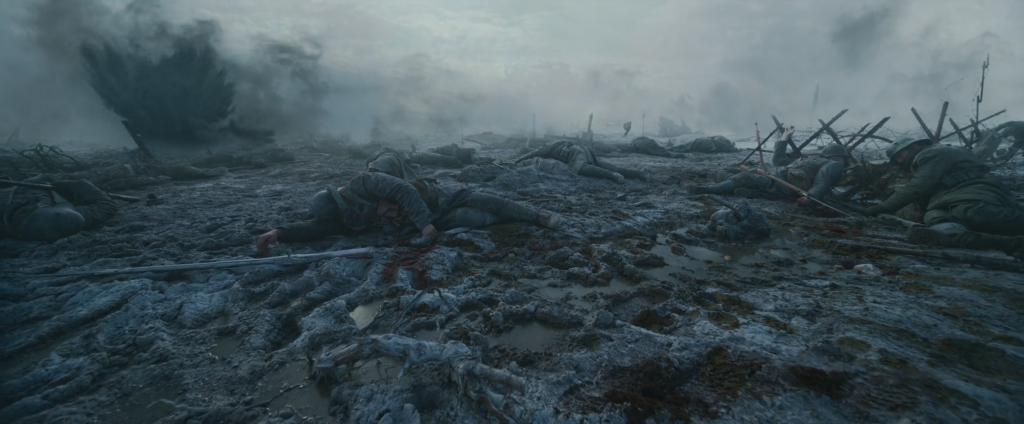
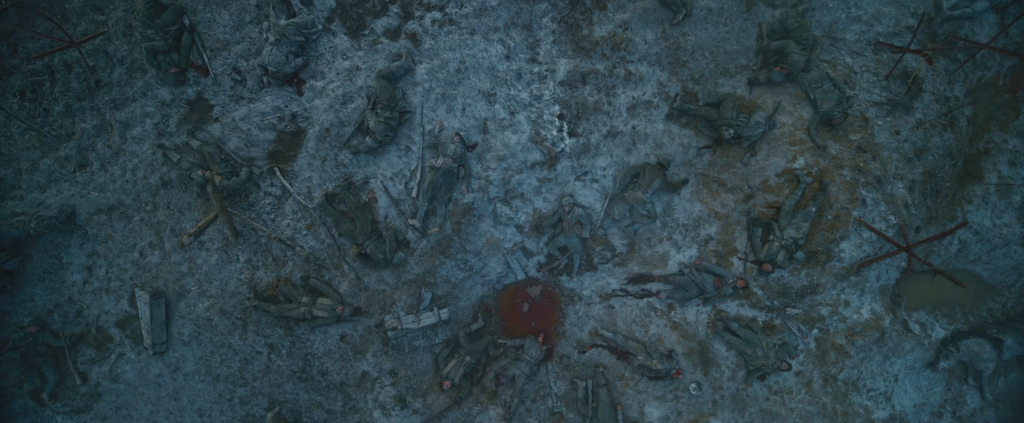
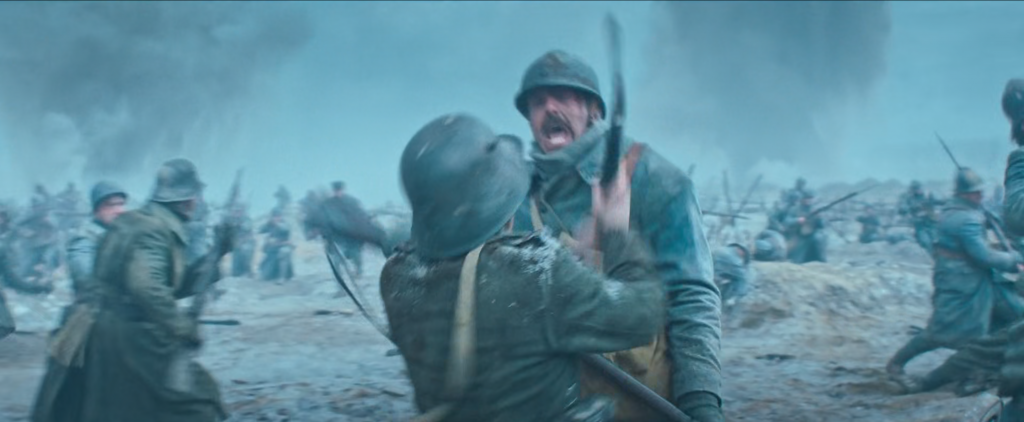
From the beginning sequences depicting the uniforms of killed in action soldiers being recycled in factories where seamstress’s wash the blood soaked apparels, sew new pieces of cloth to cover bullet holes, to where they are repaired like new and then returned to the front to be given to new recruits, suggests the meat grinder of the war machine that never pauses to grieve for the previous souls that wore such uniforms. It leaves a lasting shocking impression of hopelessness and dirge that is both profound and demoralizing.
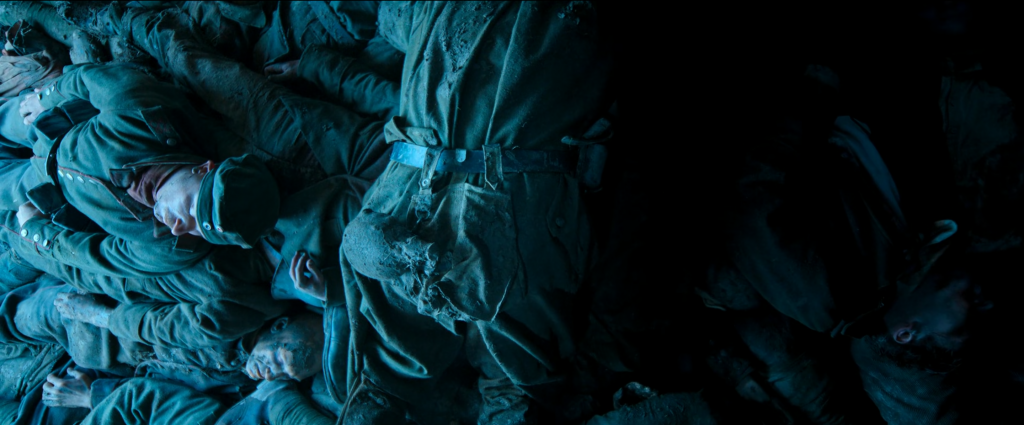
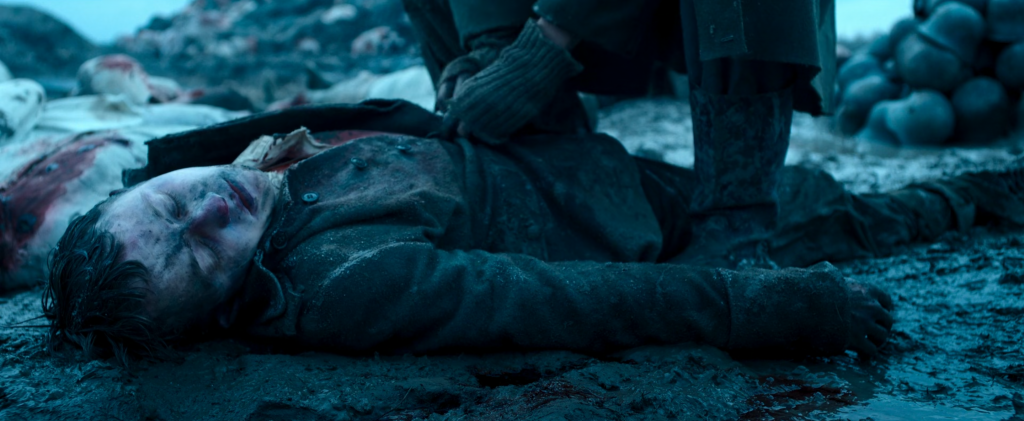
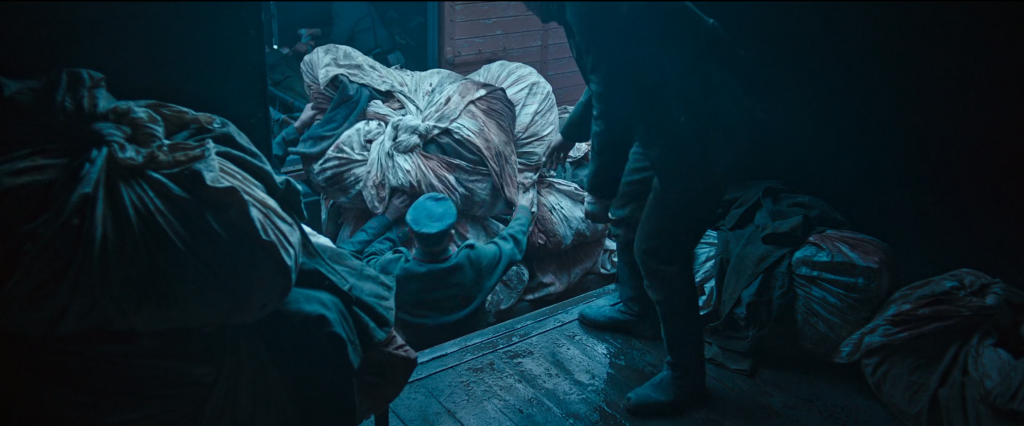
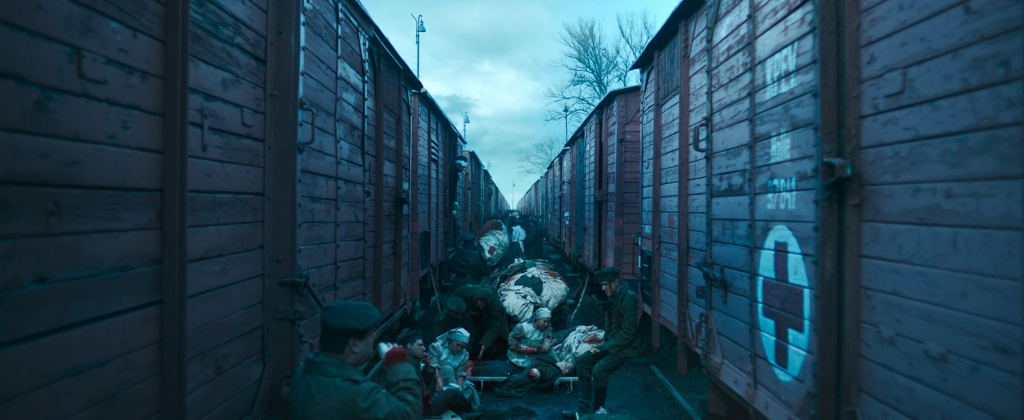
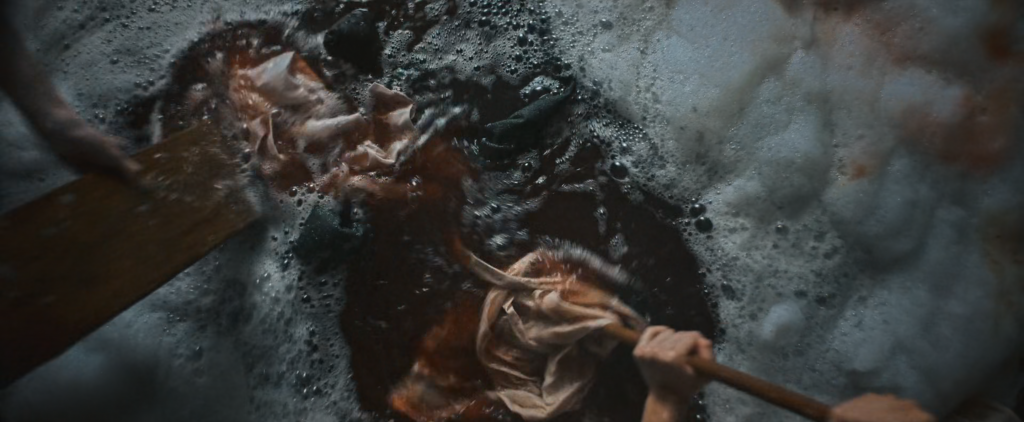
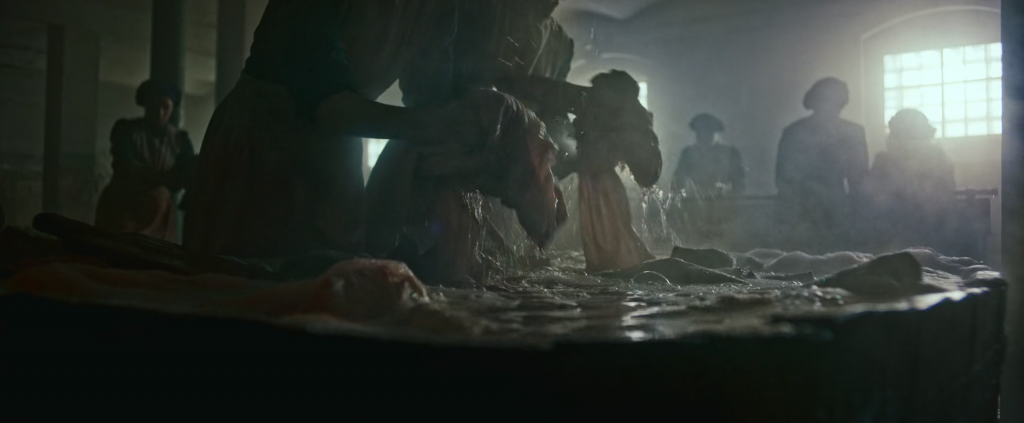
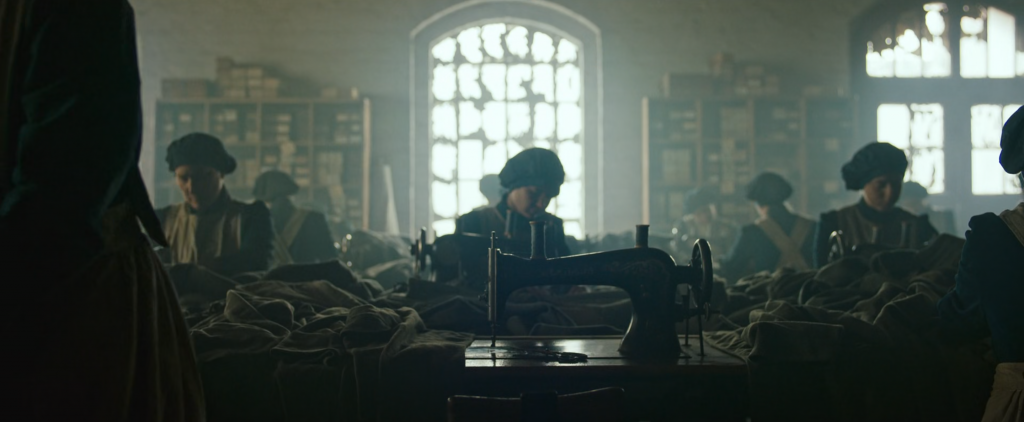
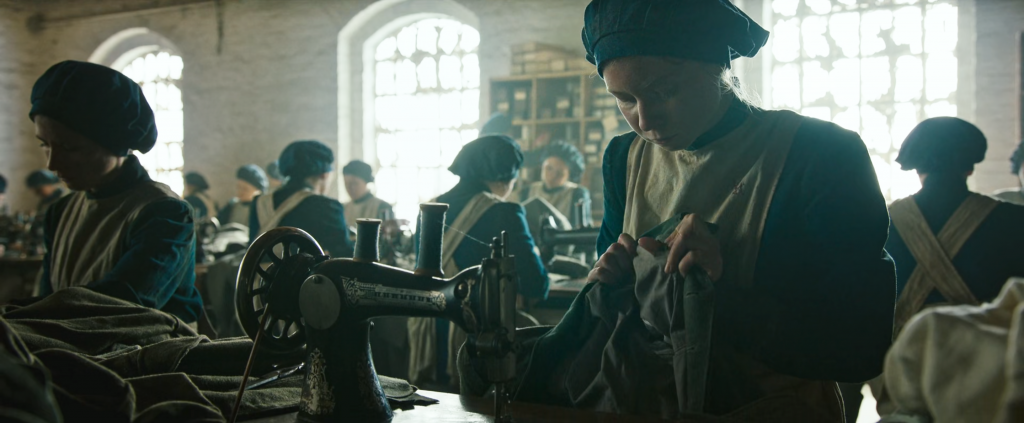
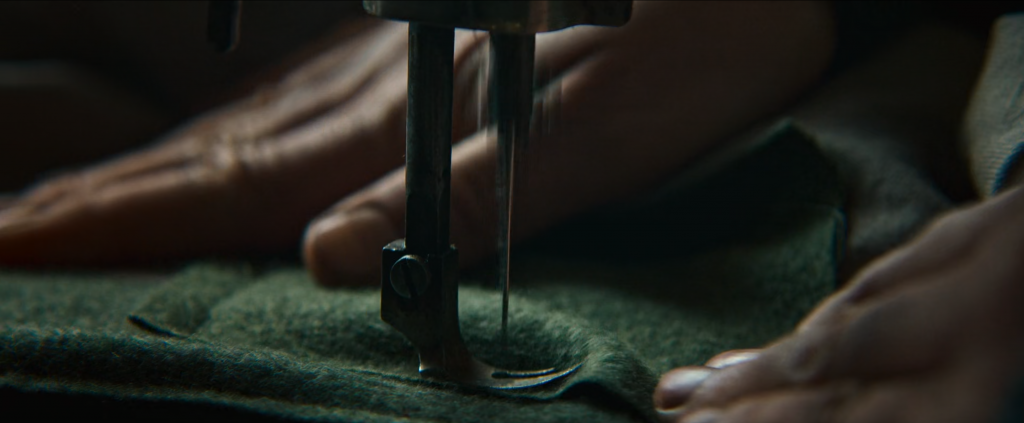

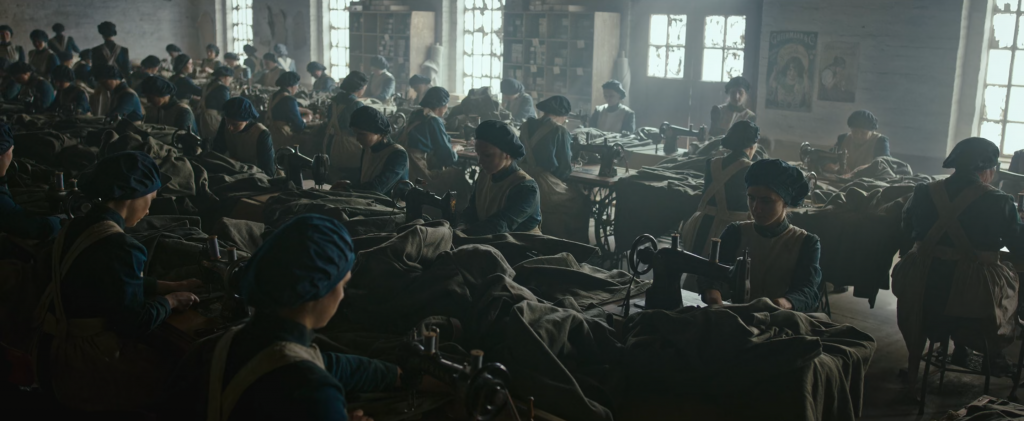
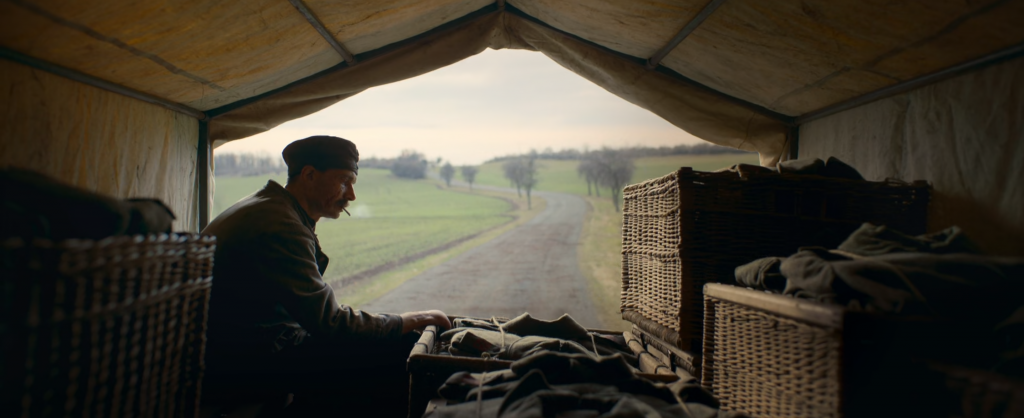
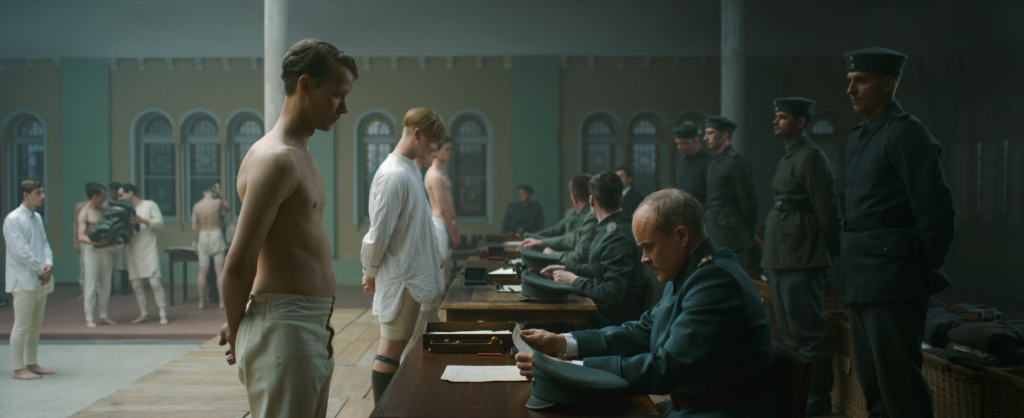
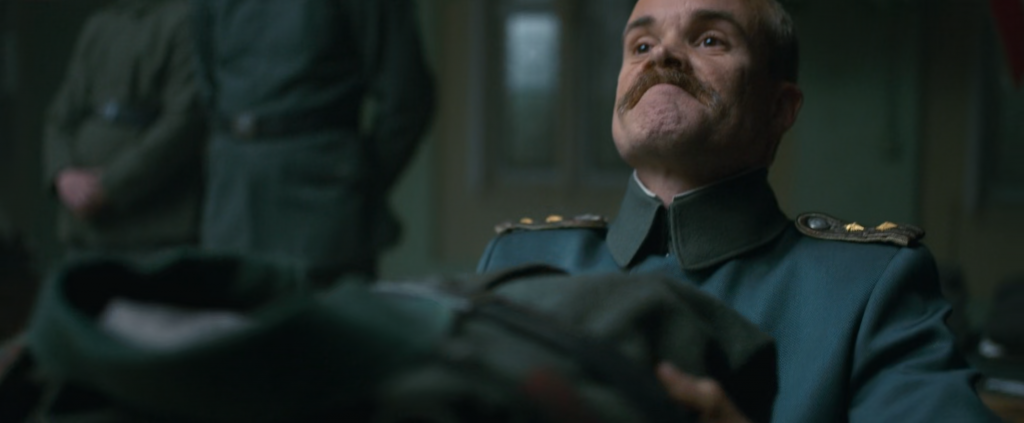

The film is premised around the life of a young German soldier named Paul Baumer when war breaks out in Germany in 1914. Paul Bäumer and his classmates quickly enlist in the army to serve their fatherland. No sooner are they drafted the first images from the battlefield exposed them to the reality of war. From the first shells hitting the bunkers where fear is one emotion that strikes quick from the very beginning and continues throughout is where such start realities starts to set in. From happy faces to ones of solemn jaunt looks depicts the rapid aging effect that war has upon a person.
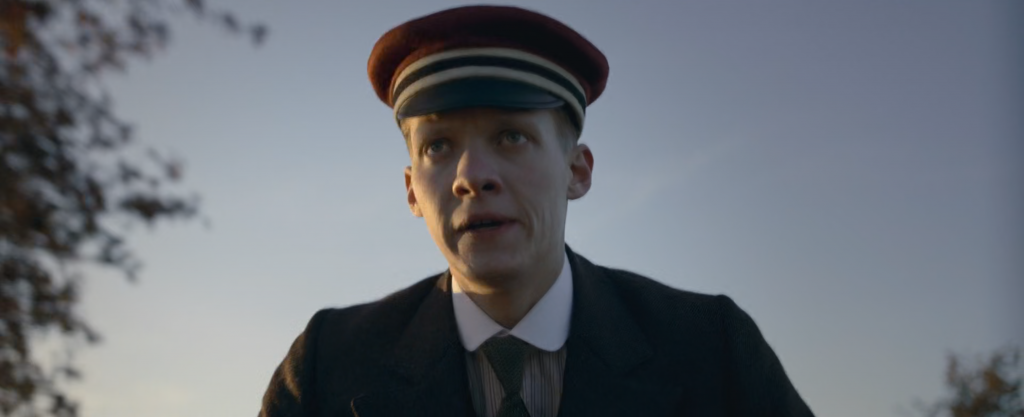
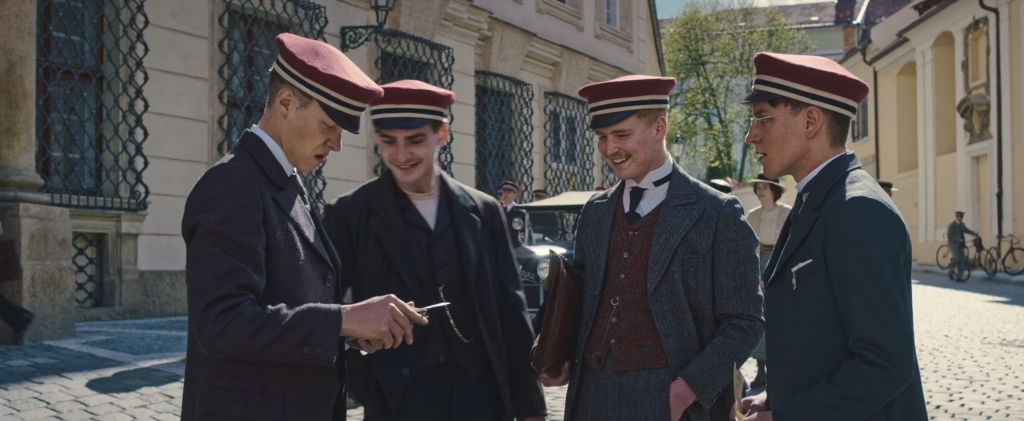
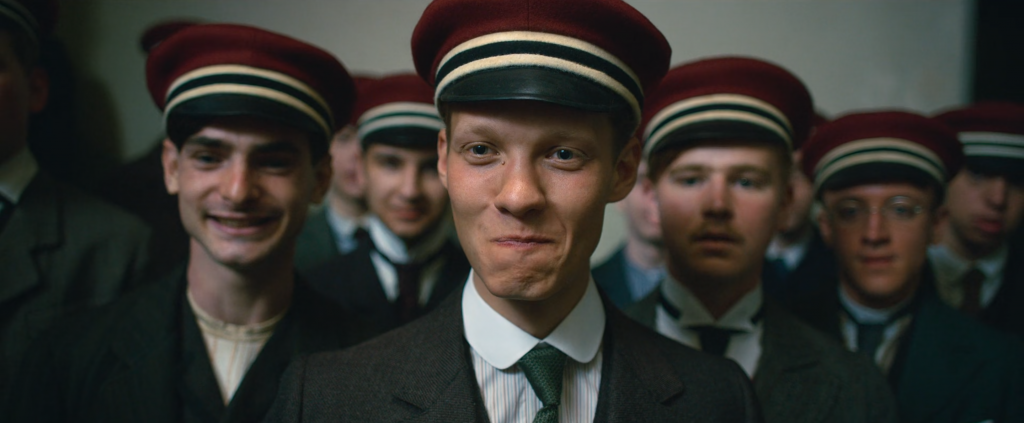
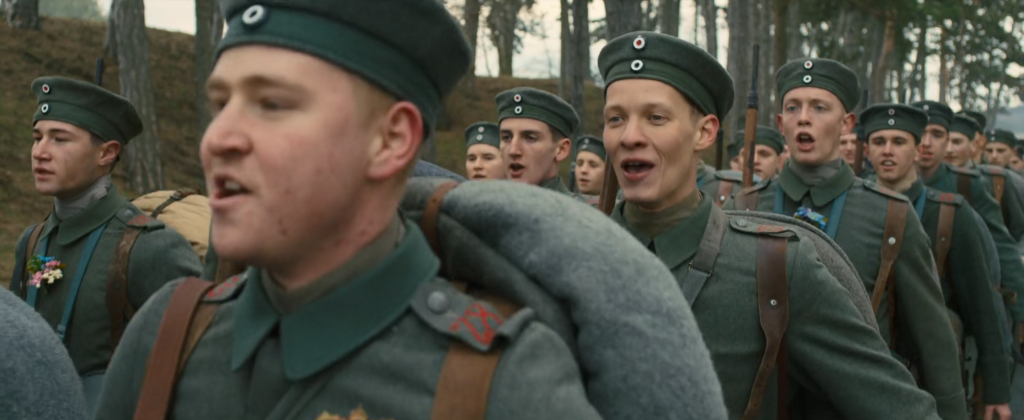
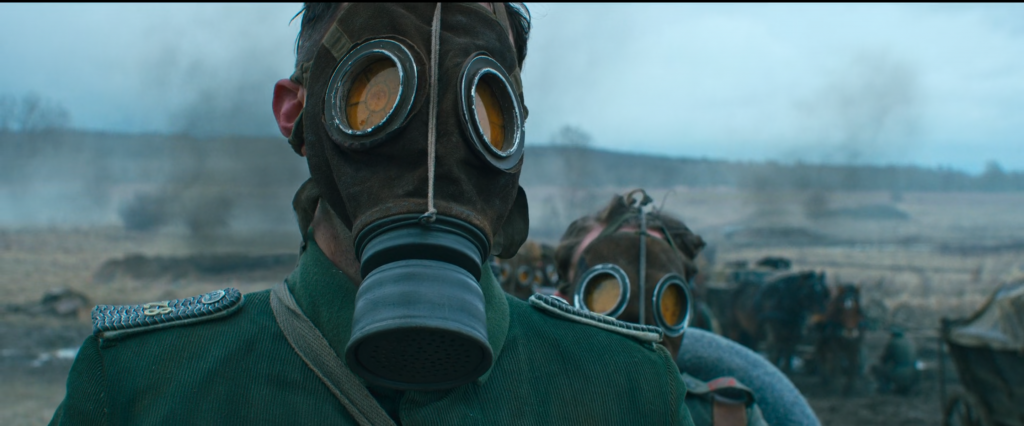
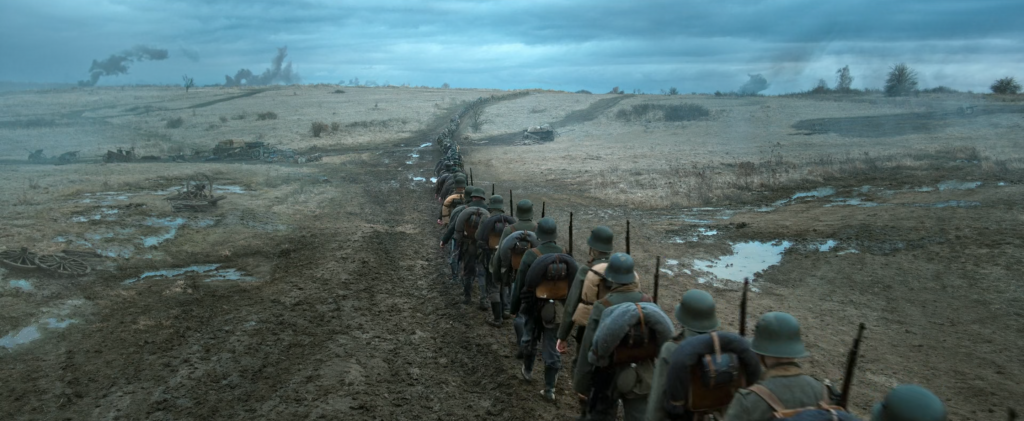
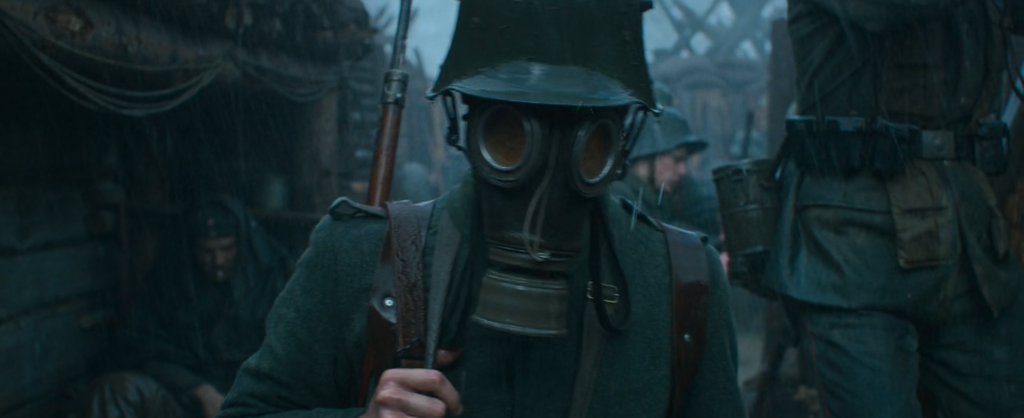
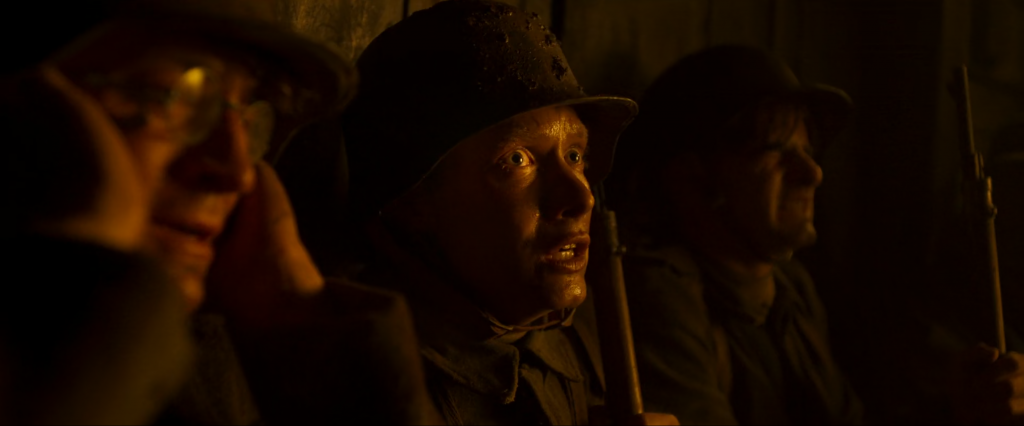
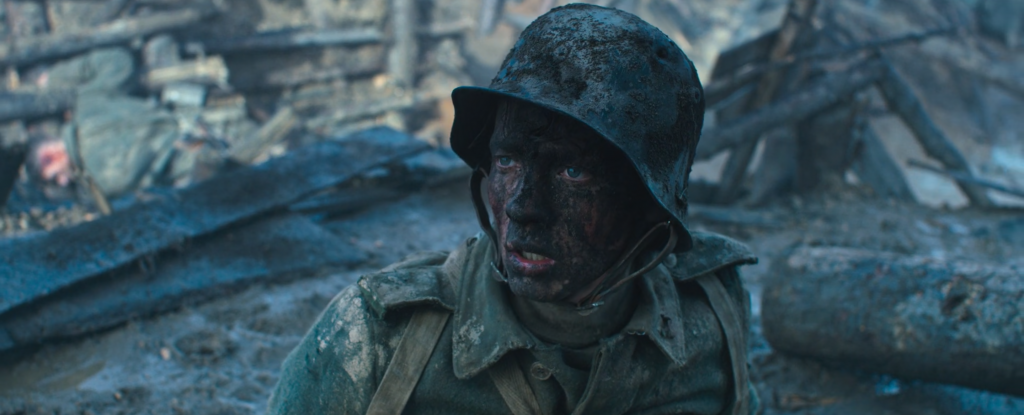
The way this film is shot and how it portrays the every day realities of war and the young men who are forced to live through it, along with contrasting images of wealth, privileged elites who like to indulge in the finer things in life like clean sheets and beds, warm shelters, catered served food, while soldiers who are muddy tired, hungry, and are forced to struggle with the prospects of the terrifying life and death circumstances of war, we get the sense of two worlds in contradiction of each other.
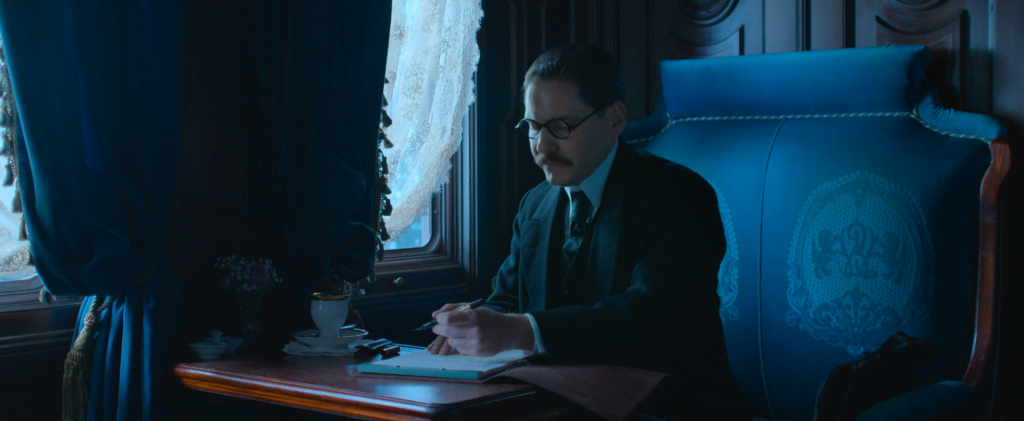
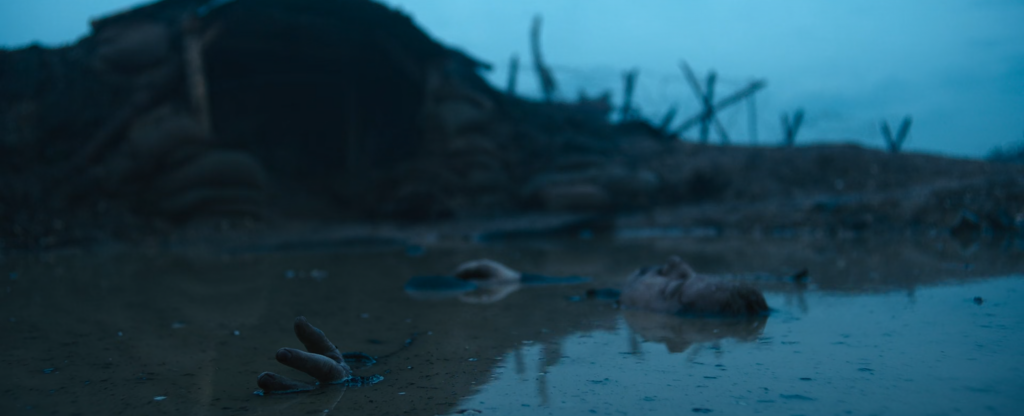

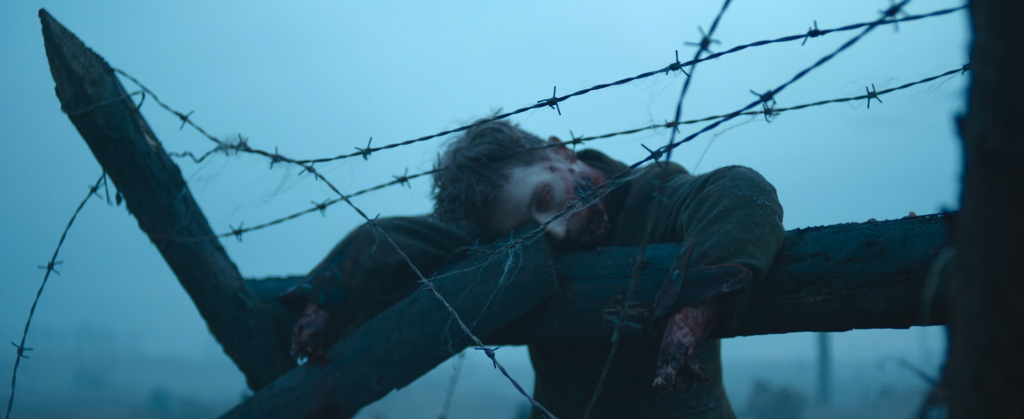
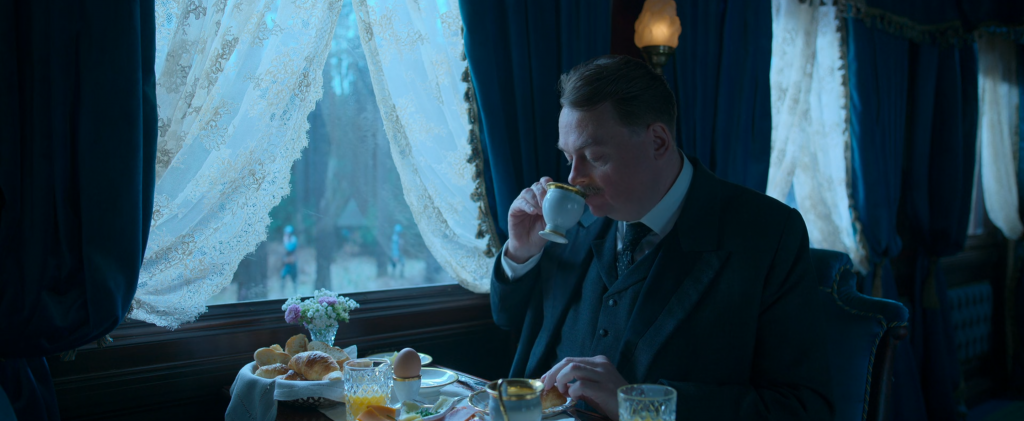
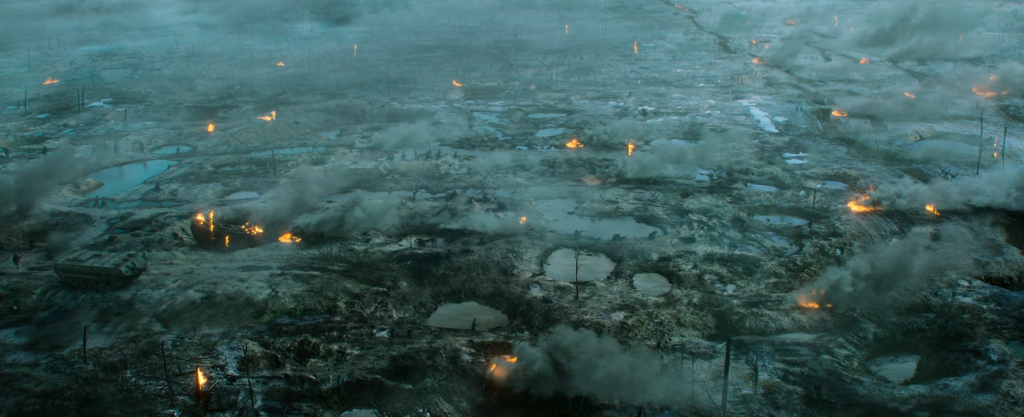
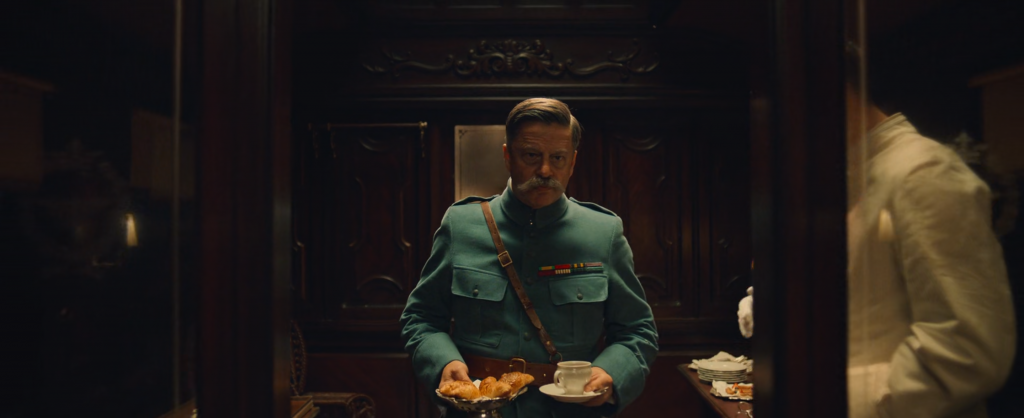
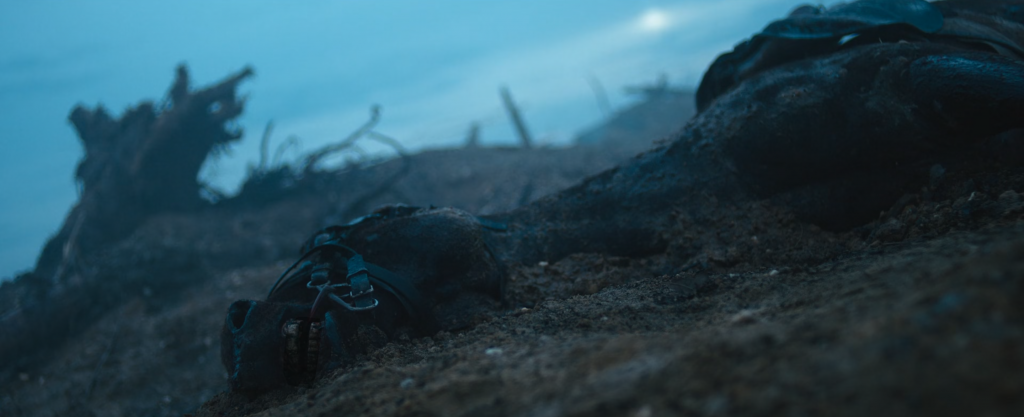
The Soldiers whose lives become expendable acting as chess pieces on a board while a political and military class look for ways to negotiate in order to prolong their careers, almost makes such commoners doing the fighting less than human. For the soldier the only time they are allowed to feel human again is when they get to smoke a cigarette where moments to contemplate their future as ordinary people is a reprieve from the hellish suffering they are forced to endure.
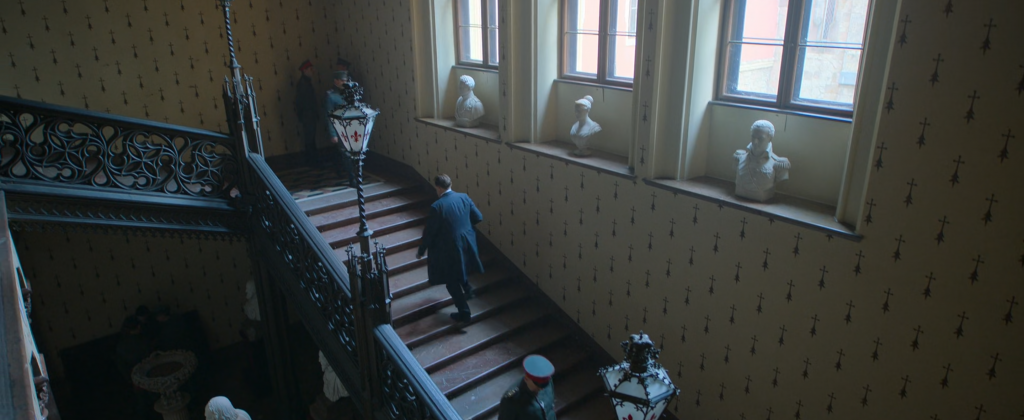
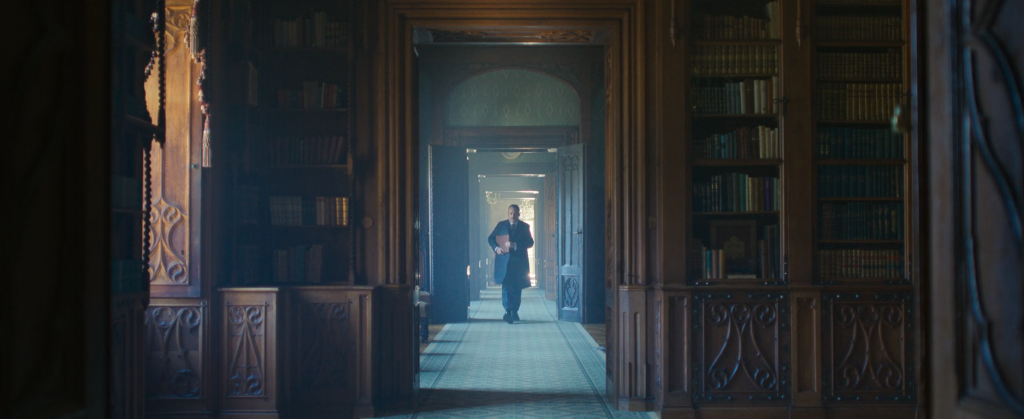
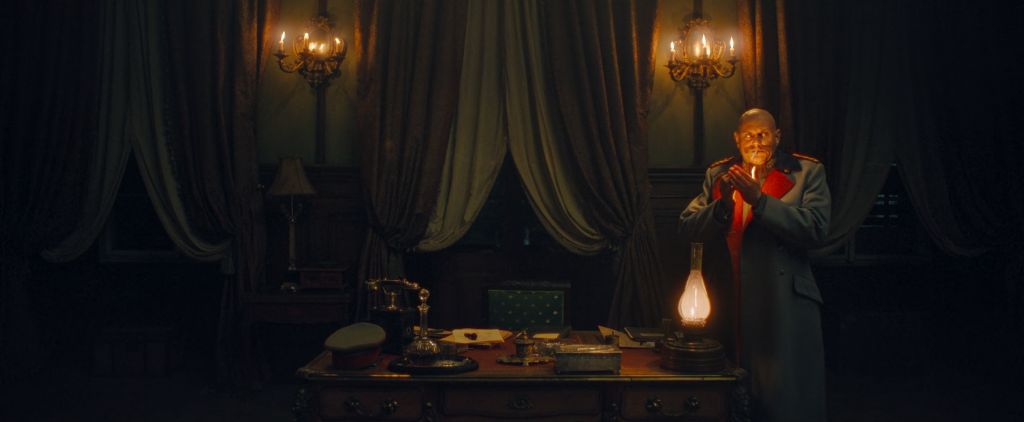
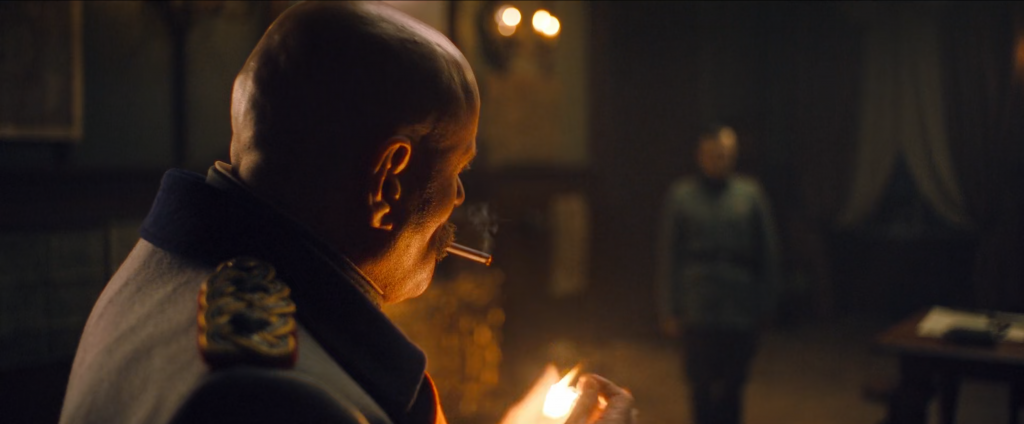
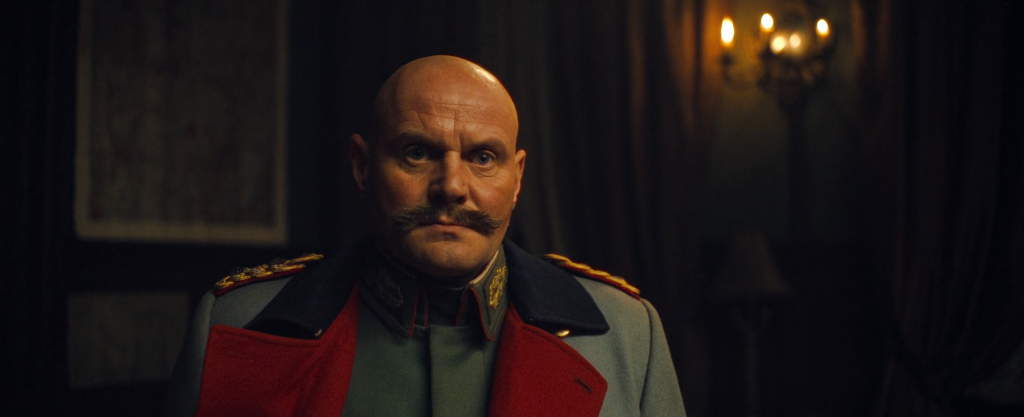
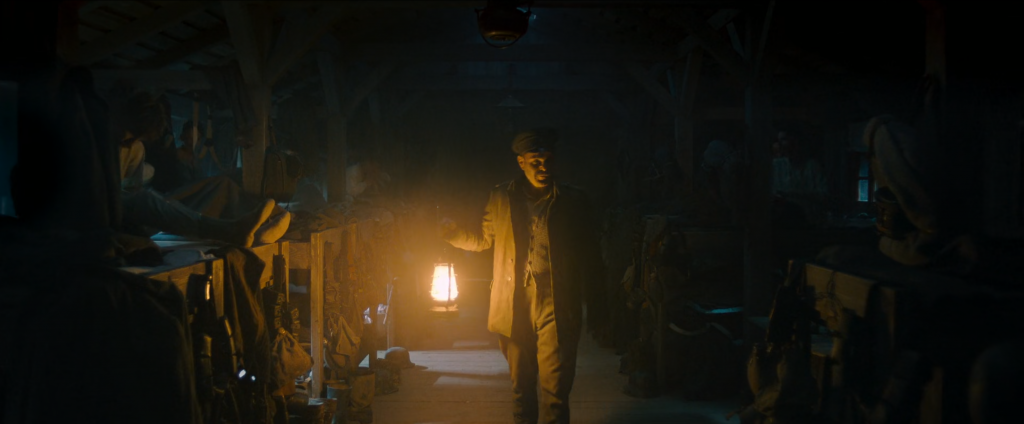
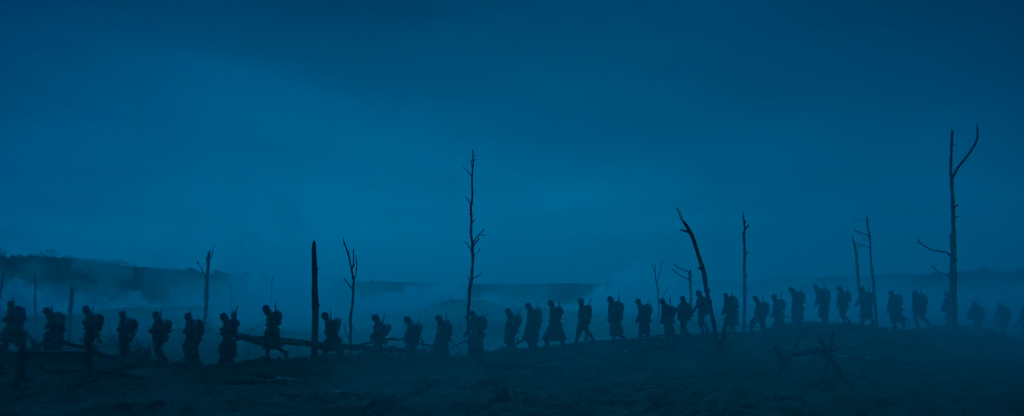

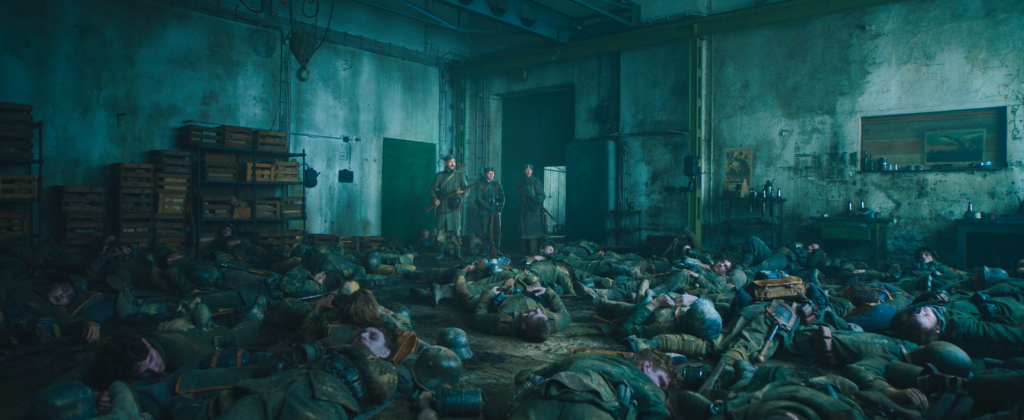
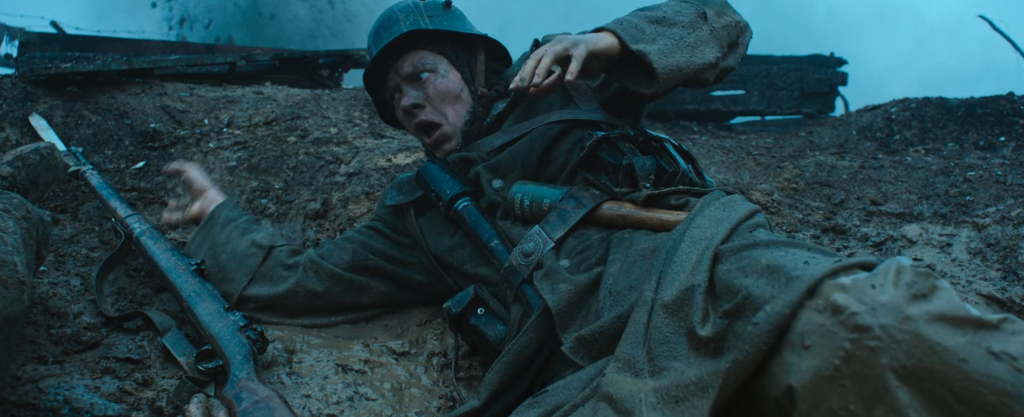
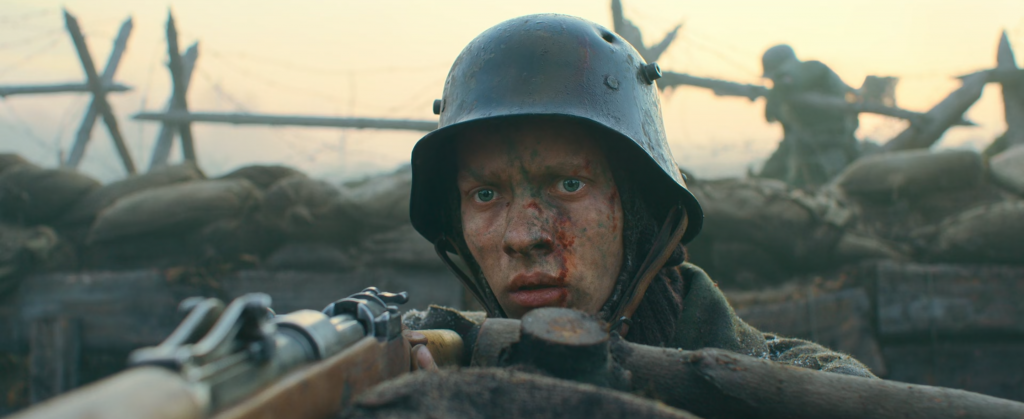
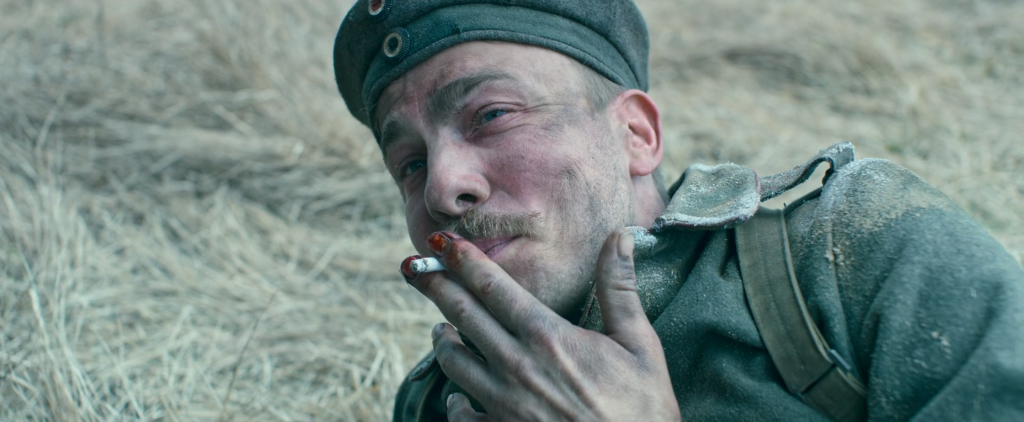
This film marks on so much symbolism that it leaves the audience with profound thoughts especially ones that begs the question on whether humanity can learn from its dark pasts of the overwhelming costs of war and the hypocrisy of those who created such conflicts to begin with. In a world away where the lives of thousands of soldiers fates lays in the hands of politicians and opposing military leaders where every second counts, a meeting is taking place in a forest where two rail roads converge on opposite sides of a tree line to discuss terms. The scenes marks a seminal moment of the movie that contributes to both the intensity and gravity of a dire situation that the Germans find themselves in as well as the future implications that an uncompromising French general who is offering a specific decree of non negotiable terms will have in the long term. Why this scene is so important to the rest of the context of the movie, is from a historical perspective one can glean and look into a past event for a deeper understanding on why hostilities from the Germans never subsided or went away at the conclusion of the war; which started with how the terms for ending the war were agreed upon. The notion that such terms would inflict such catastrophe in an economic sense, then the cause and effect of such events gave impetus to rising nationalistic ambitions that would see Germany rise again 20 years later to wage war to which the world would be involved with again.
The head of the German delegation Mathias Erzberger played by Daniel Bruhl comes into the meeting with the French counters parts with almost hat in hand. Erzberger reads a prepared statement to French General Ferdinand Foch expressing the need to end hostilities while the two parties negotiate a settlement. General Foch looks at Erberger and senses his weakness, he observes Erzberger’s shaky and nervous disposition and is prepared to take advantage of his weak position by asking him what was the purpose of his visit. Erzbrger states that he came to hear what proposal he has to offer in order to end the hostilities between the two nations. When General Foch tells him he has no proposal to offer, this is when then see a stunned Erzberger who takes a few nervous swallows to gather himself before asking his interpreter what does he mean? The interpreter tells him that General Foch didn’t like his phrasing of his opening statement. Erzberger at this instance is seen visibly nervous and sweating, as he grabs a handkerchief to wipe the perspiration from his neck in an attempt to collect himself. Erzberger then instructs his interpreter to ask the French General what are his conditions. When the interpreter translates the question to Foch, the French General with a raised voice and terse response tells him that he wants Erzberger to formally ask for conditions in order to humiliate him further. At first Erzberger is confused and a moment of uncomfortable silence like when a pin can be heard dropping on a floor is apparent. Erzberger’s top Military adviser then tells Erzberger that he has to officially ask knowing perfectly well what the French General is implying with stated pride to further humiliate a defeated enemy. When Erzberger formally obliges the generals request, the general wipes his mustache before reaching next to him to grab a leather bound pad and hands it to Erzberger stating that the conditions are non negotiable and that he has seventy two hours to decide, but the war will continue as he reviews the document. Erzberger gasping in desperation pleads to General Foch for a cessation of hostilities for the duration of the seventy two hours so they can negotiate the terms. The general without saying a word grabs a pen and holds it out for Erzberger and tells him to sign the document in french. The scene then cuts to a dead soldier floating in a pool of water indicating the intensity of a dire situation.
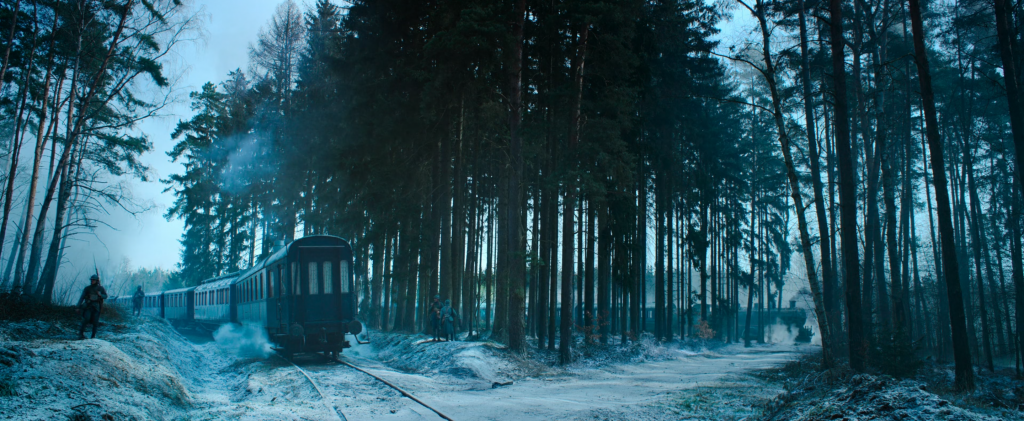
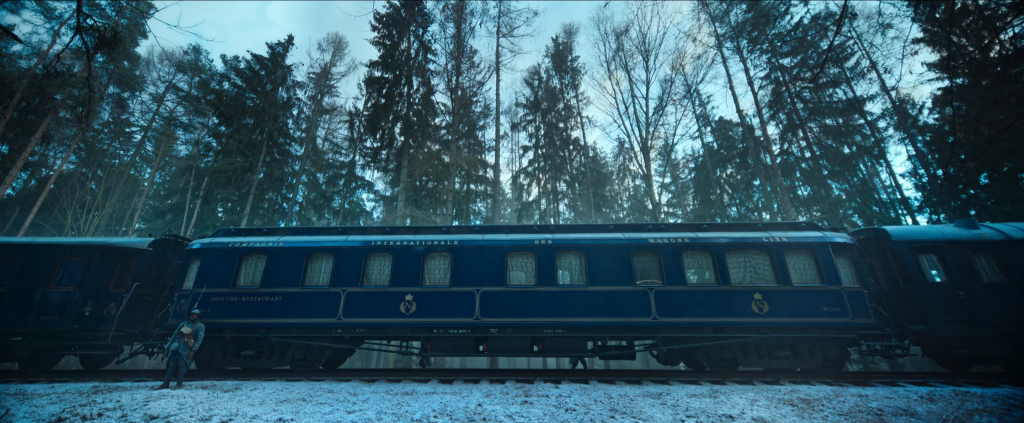
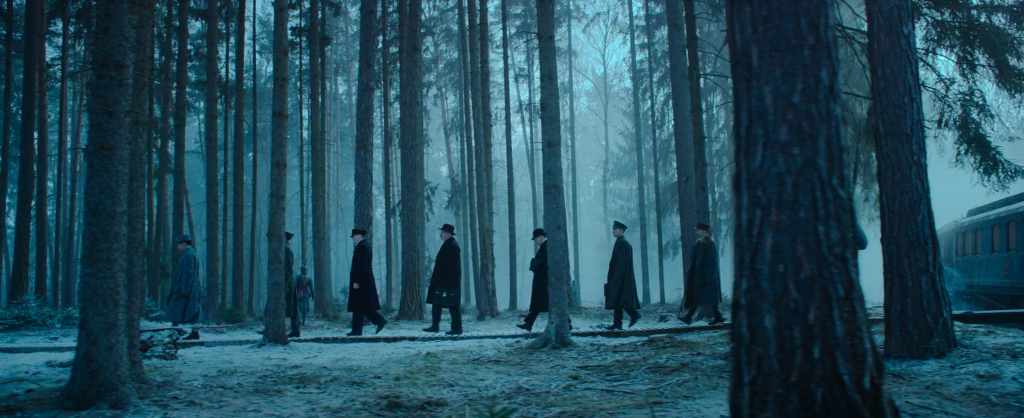
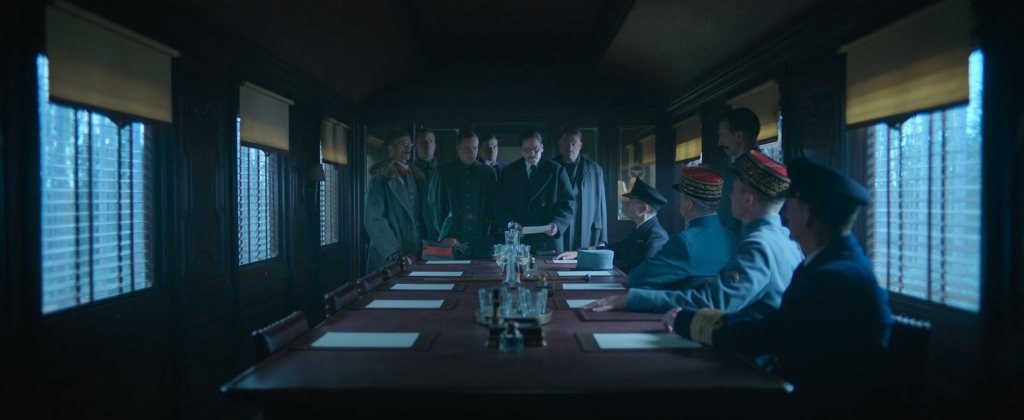
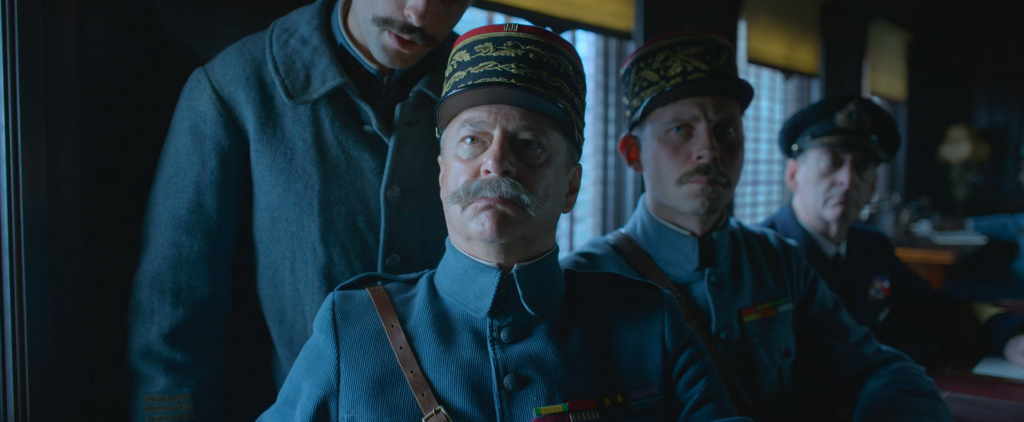
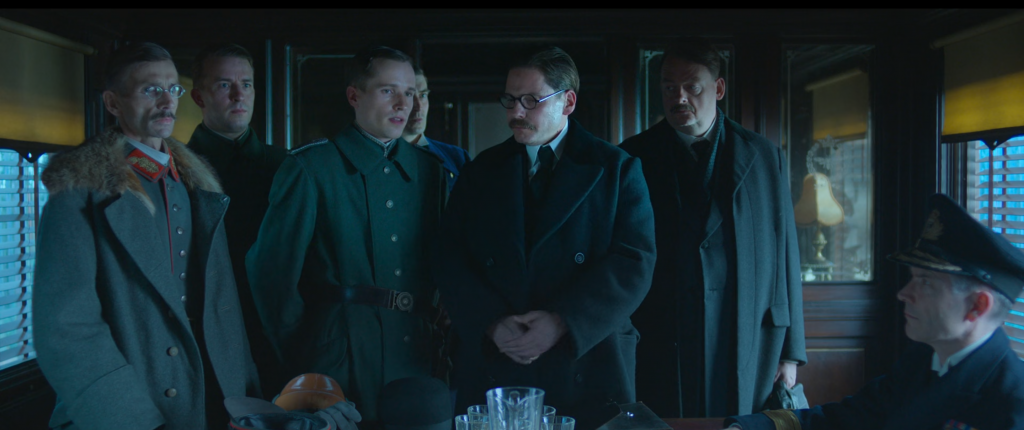
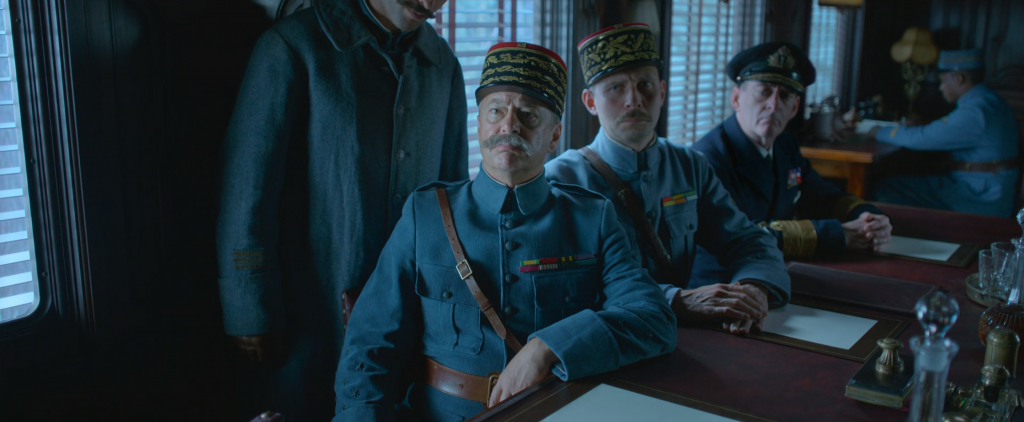
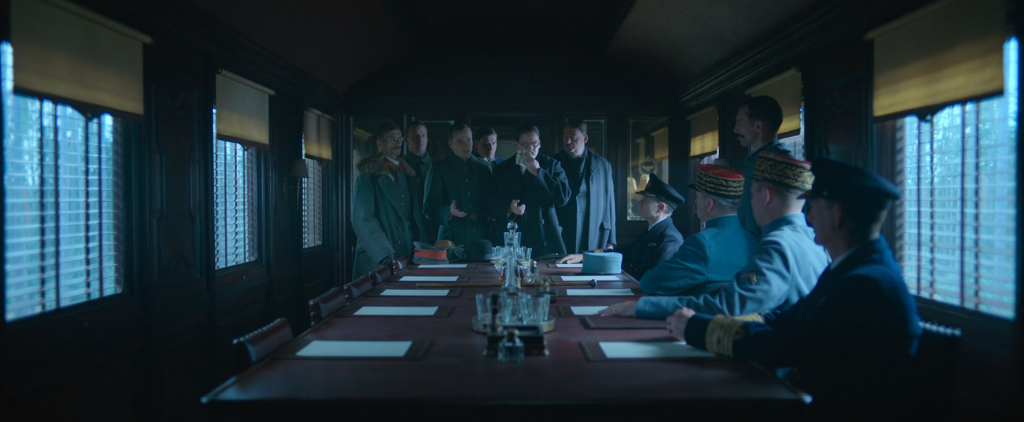
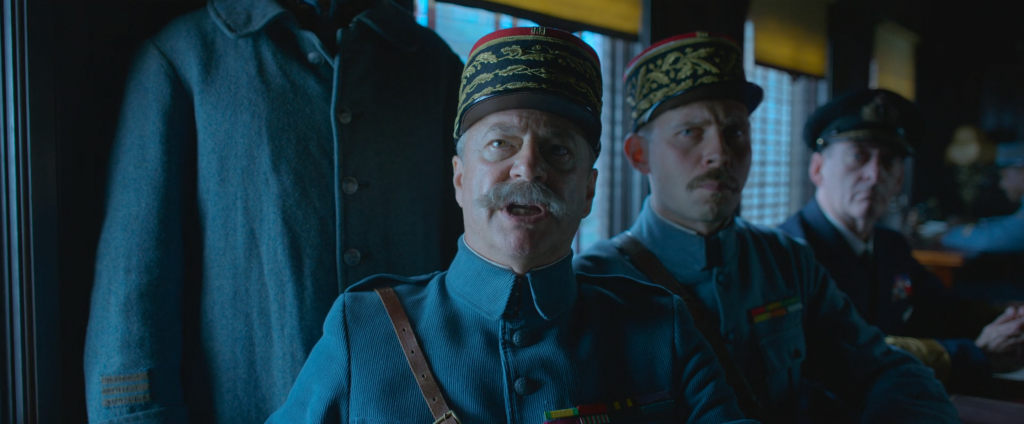
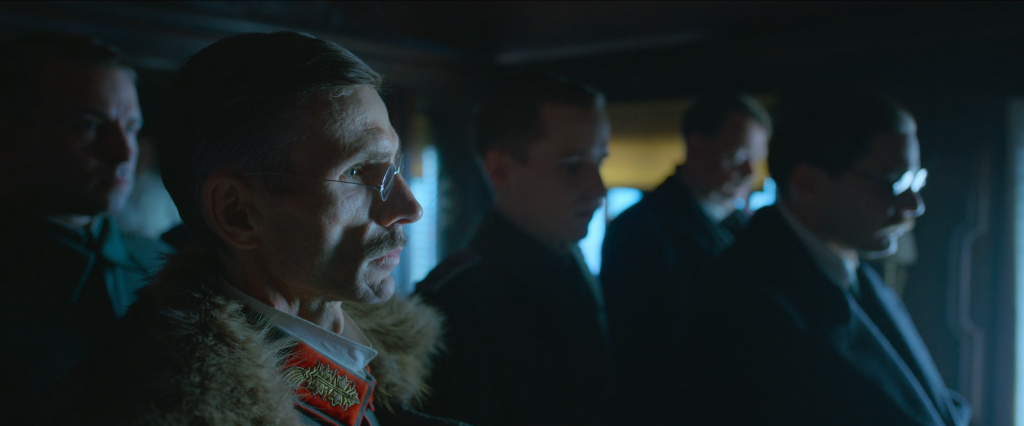
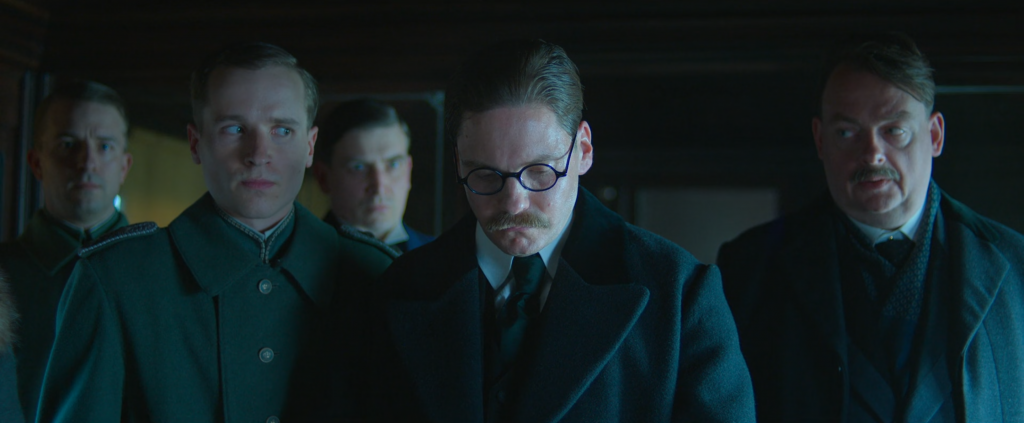
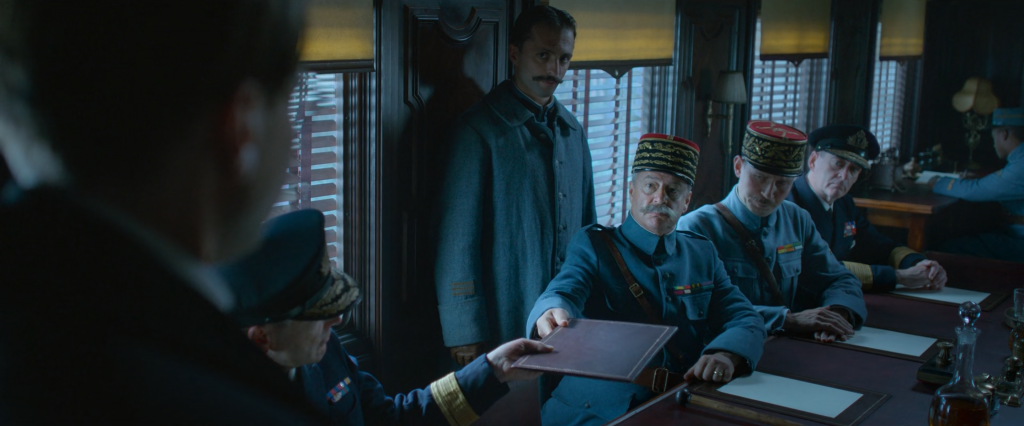
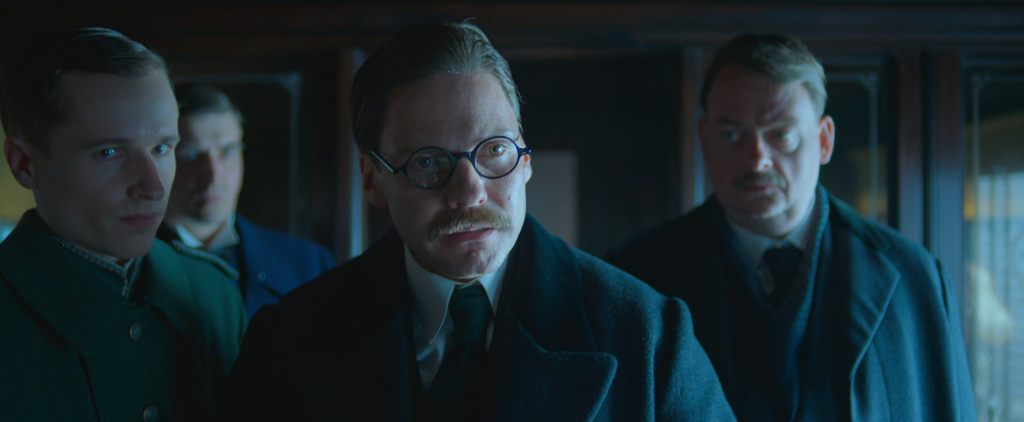
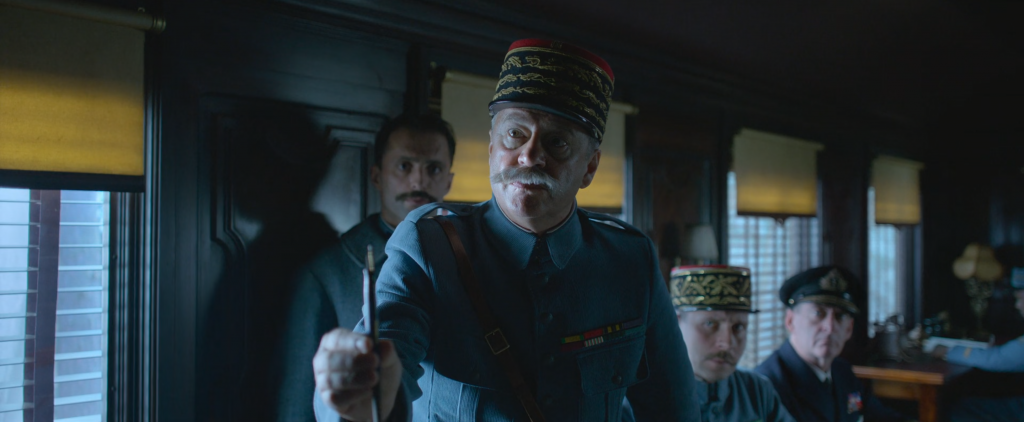
Meanwhile as the negotiations are taking place soldiers on the front line awaiting orders in what appears to be a quiet tense moment among the ranks. The intensity, desperation and the dire uncertainty that their lived moments are spent in waiting, shows on their stoic faces as their fates hangs in the balance. The scene where one of Baumer’s comrades tries to make a lighthearted comment to lighten the mood after kissing a magazine picture of a cartoon woman before sticking it on a nail of the trench’s wooden wall by asking him if he was envious. Baumer just looks at his comrade without emotion but rather gives him a look with serious gravity displaying the intensity of the moment so much so that one could cut it with a knife. When the call finally does come in that no peace settlement had been reached, the men are then given orders to leave their positions and charge the field where death for many await. The moment came as one of dread and solemness.
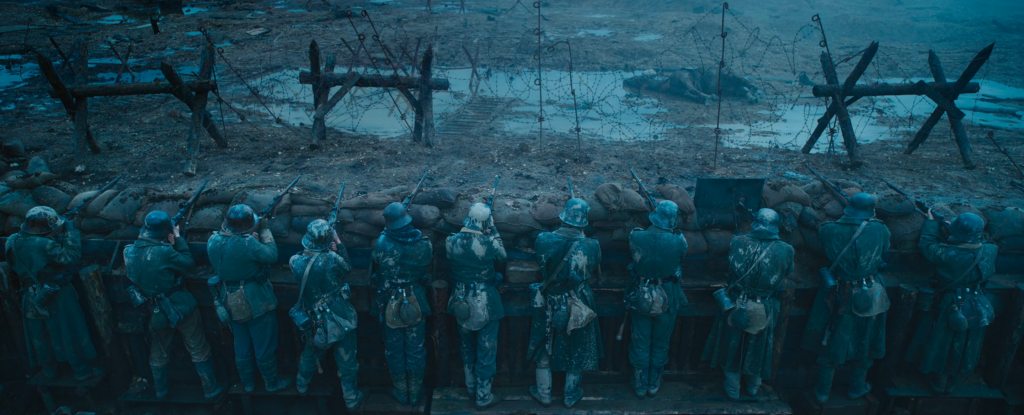
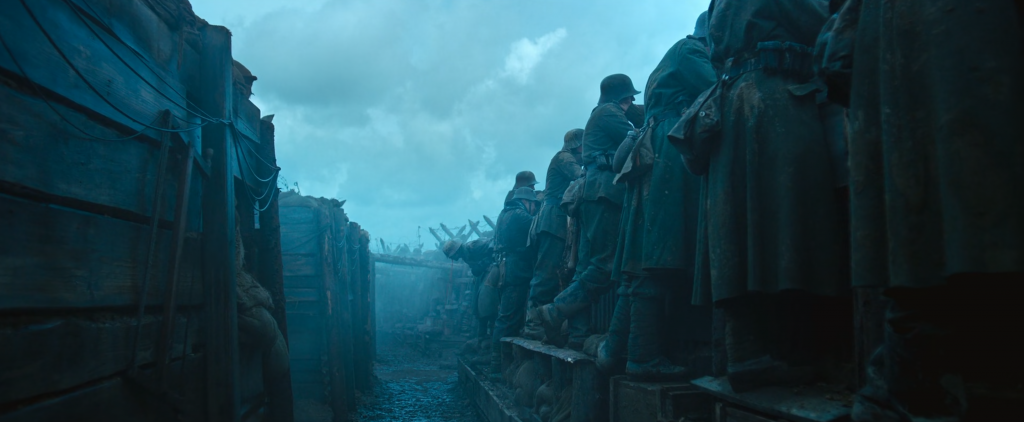
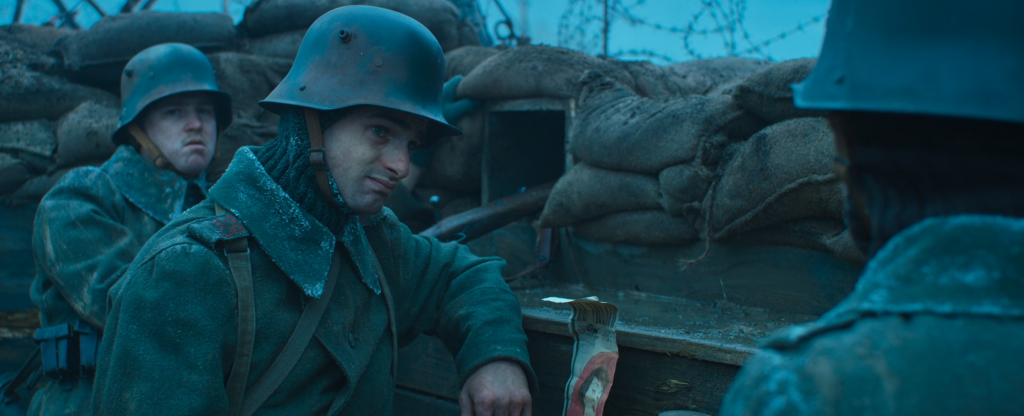
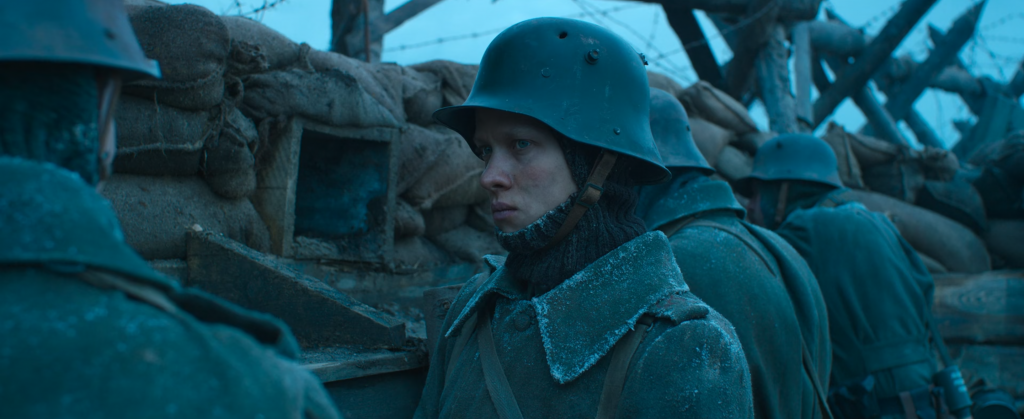
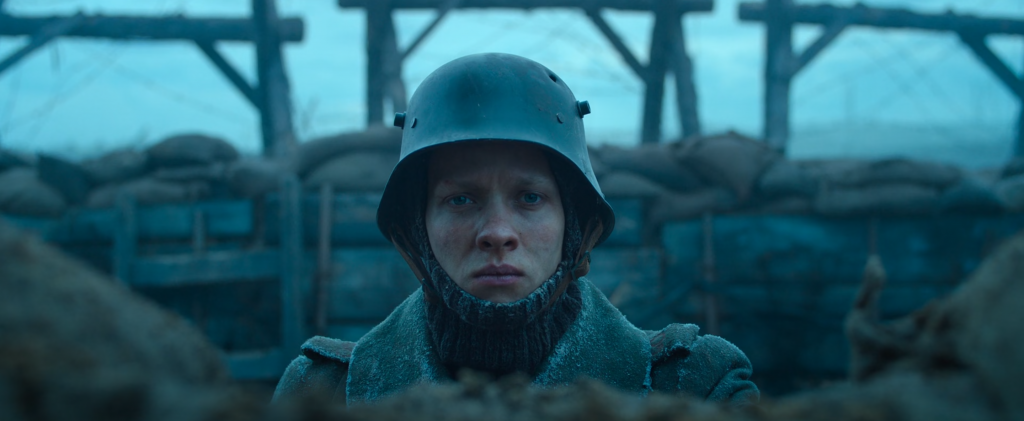
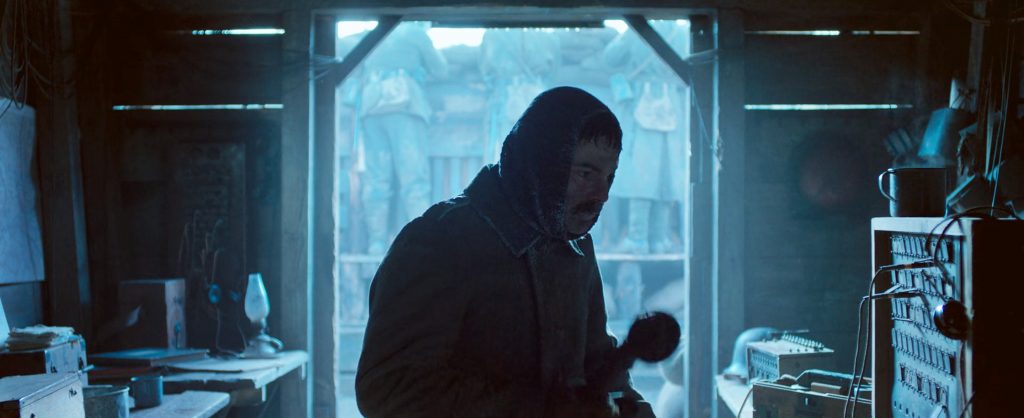
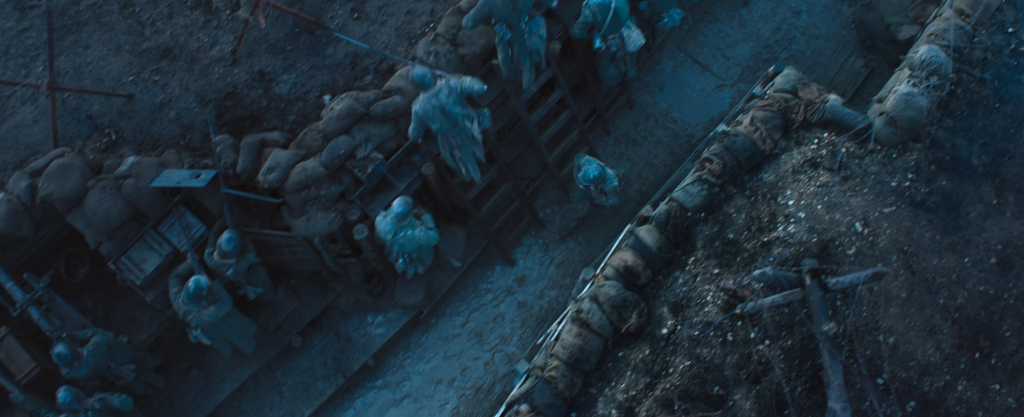
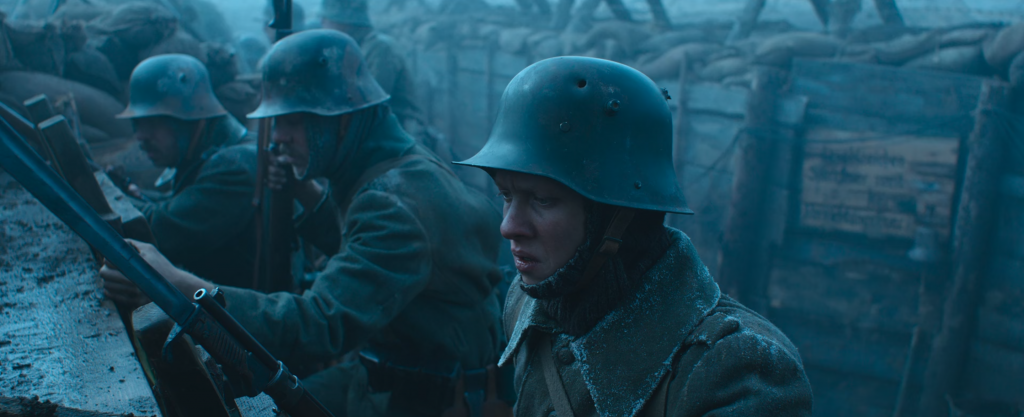
One of the most remarkable aspects of this movie is witnessing the transformation of the character Paul Baumer who goes from a normal human being whose life is just beginning with aspirations for what the future has to offer to one who becomes an aggressive murderous killing machine, veiled in the guise of war and justified for nationalistic agendas to which such humane morals gets lost. To think that some voluntarily signed up for the proverbial hell that one will walk through exposes the naivety of youth’s over exuberance and zealousness to engage in war not of their making, but borderlines on insanity filled with regret and despair. As we watch Baumer gradually go through extremes of being human, to exhibiting behavior of a homicidal maniac back to being human again, with each killing making him less and less, to the point he completely forgets who he used to be, (a rural teenager riding a bike to school), wholly depicts the psychological negative effects that war has on a person thus damaging them beyond repair.
We do get a moral pause in the movie to both reflect and ask the question on whether such negative effects of war can change a person beyond recognition. Such a moment comes when Baumer becomes scared and pretends to be dead for a moment as he lays in the mud to evade enemies passing by in hot pursuit of his retreating comrades. Its not until an enemy falls into the same crater that he is in that he instinctively and aggressively goes after and kills him. In a rather graphic portrayal of violence and savagery Baumer stabs the French soldier multiple times mortally wounding him. To add insult to injury and in more barbaric terms shoves dirt in the French Soldiers mouth in order to silence him to avoid being discovered by his French fellow soldiers. For a moment it seems the war pauses for Baumer as he suddenly realizes the horror of his actions and what he has become so much so that he is overcome with guilt and remorse. In a futile attempt he tries to save the French soldier by trying to give him water and attempting to bandage his wounds but to no avail the soldier eventually succumbs to his injuries. In this moment Baumer finds his humanity and is overwhelmed with grief and as he starts to mourn his enemies death. This raw emotion is then exacerbated when he rummages through the personal effects of the dead French soldier to find a picture of his wife and child, Baumer realizes that the French Soldier was no different than anybody else fighting in this senseless war. That he too had a life, with family, like all normal people who once had common ambitions and who were once loved. For Baumer all of these realities hits him in a well of raw emotions that he forgets he is a soldier in war but now a human being overcome with grief and guilt. Baumer eventually makes it back to the company of his fellow soldiers but now a forever changed guilt ridden young man only to see more death and hopelessness that starts to wear on his weary soul.
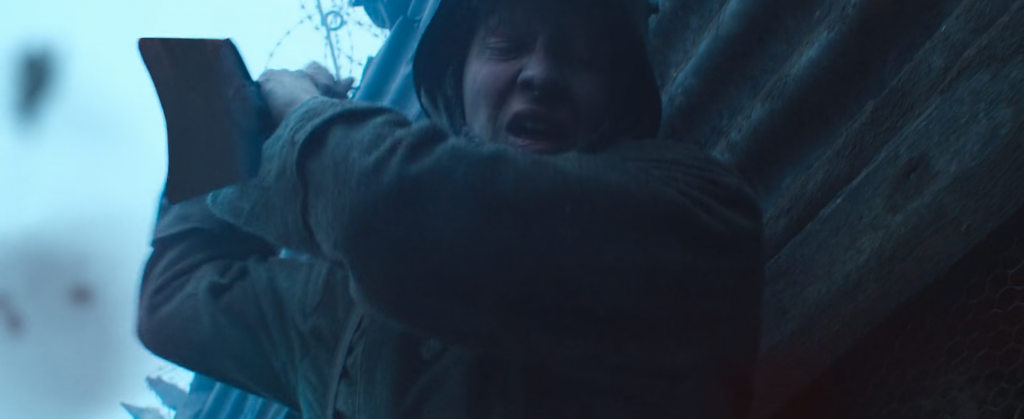
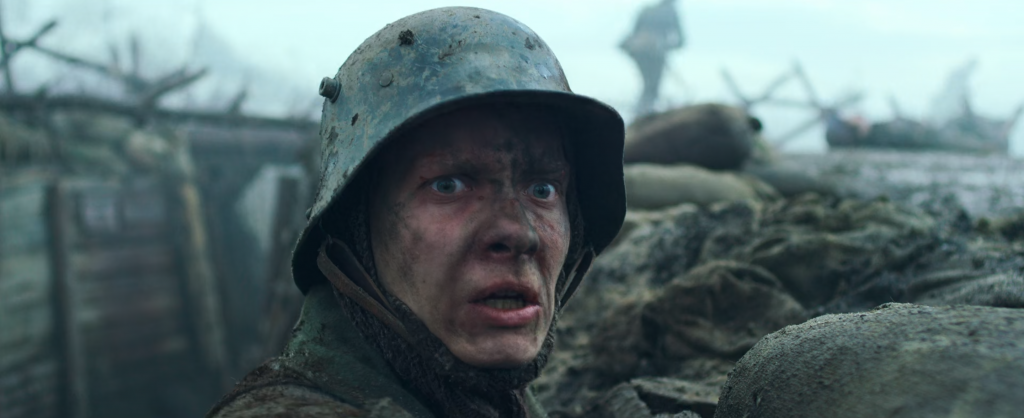
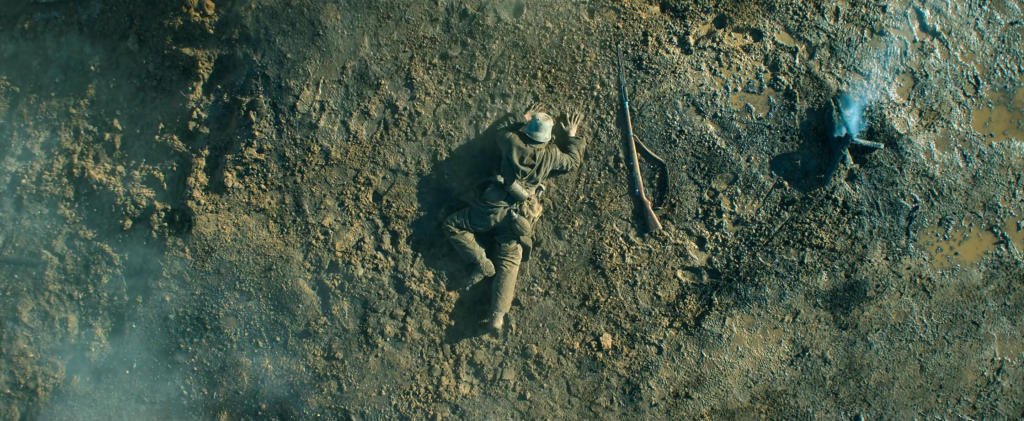
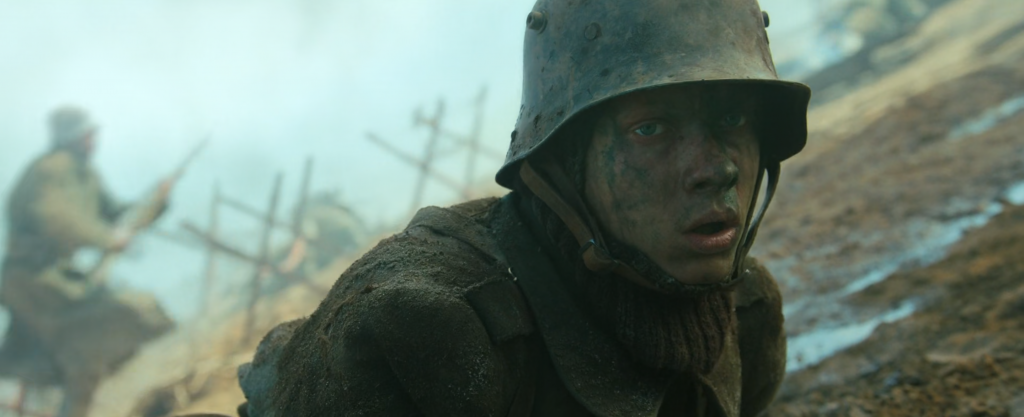
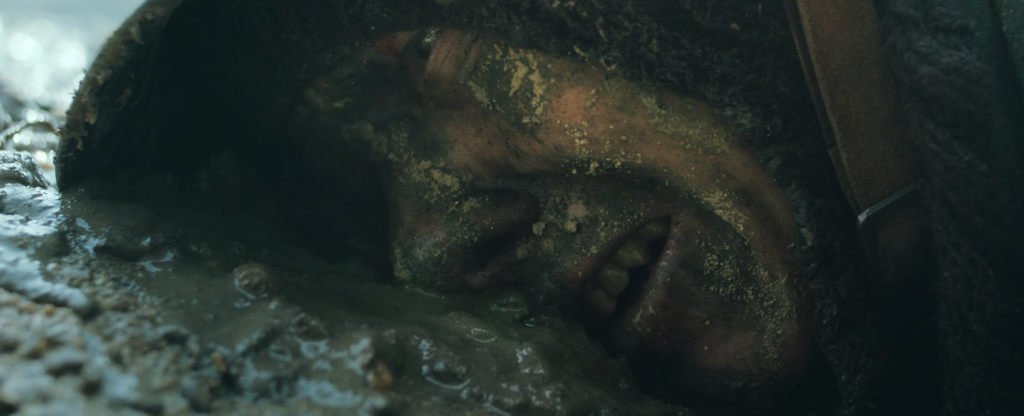
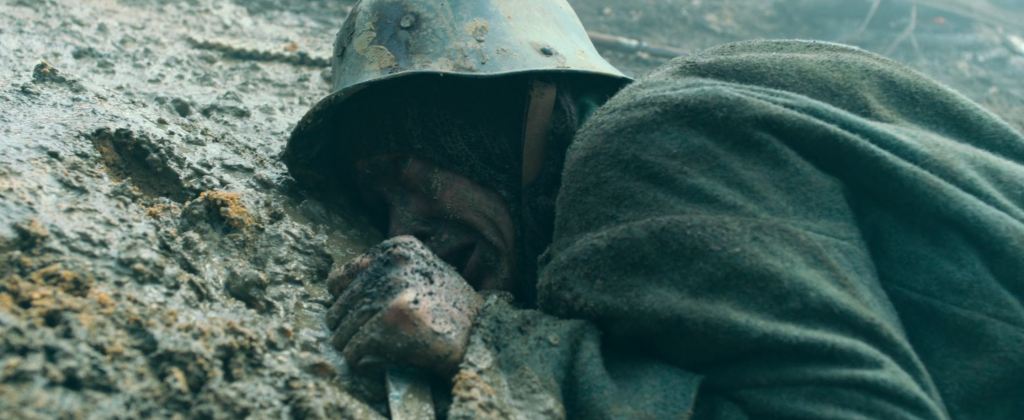
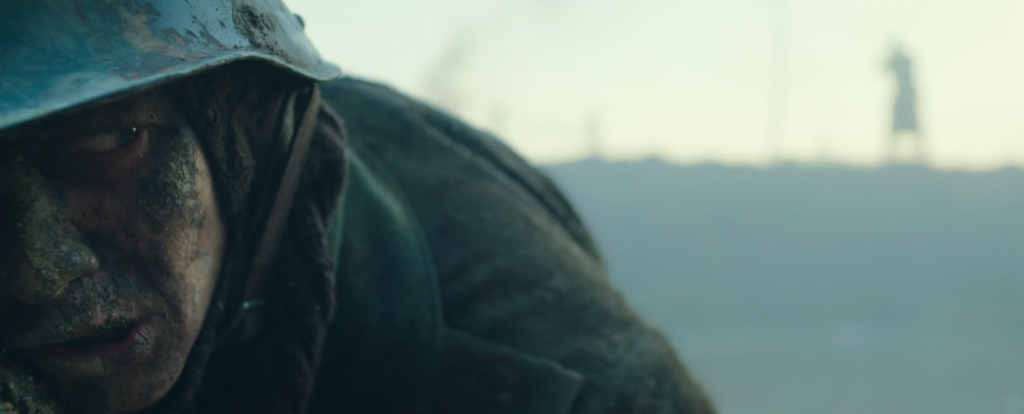
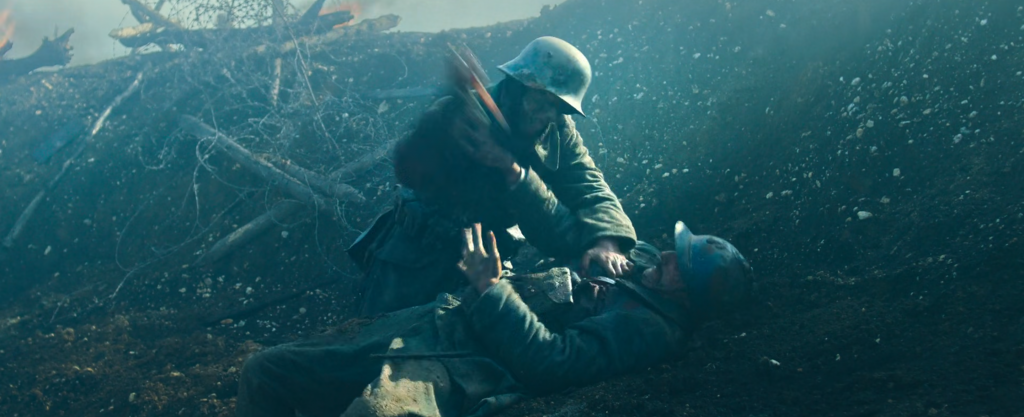
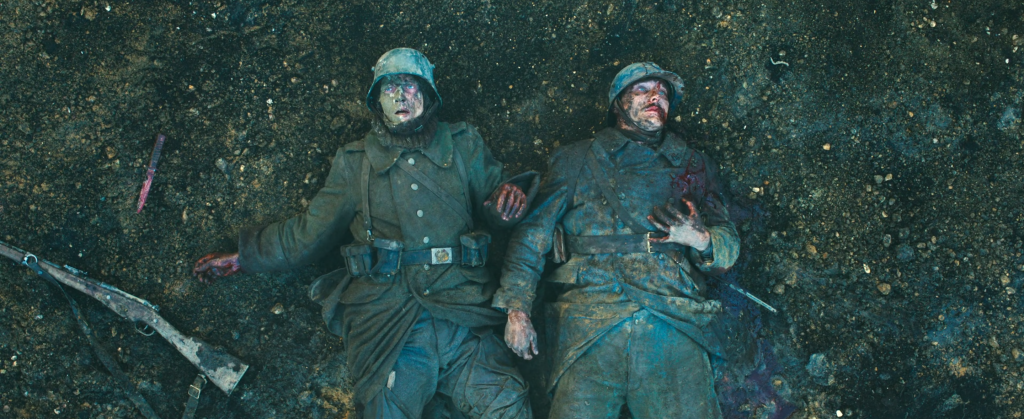
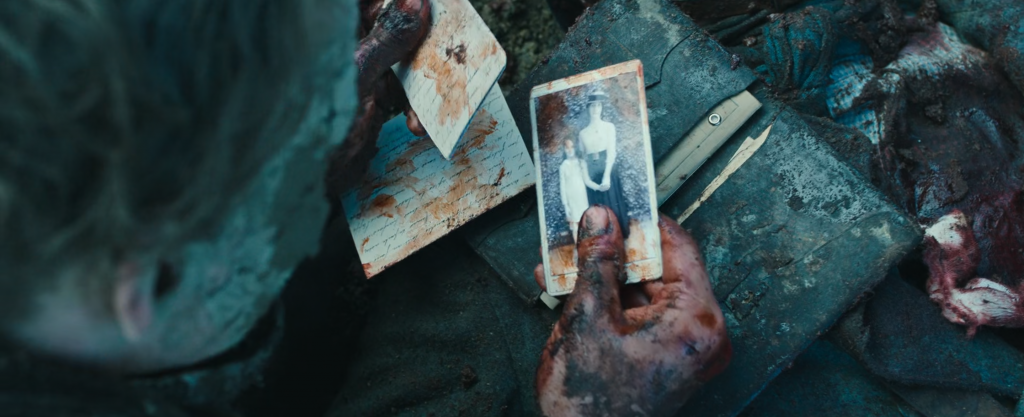
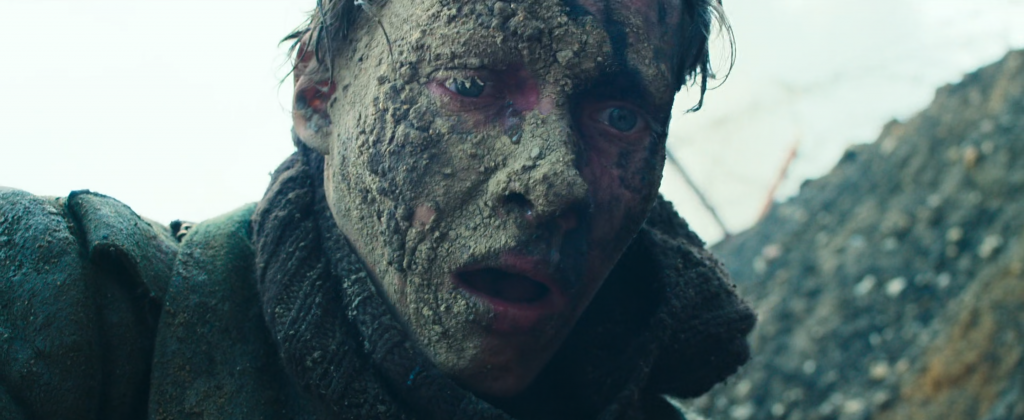
When the story returns to the negotiating process between the German and French delegations we are reminded of the cause and effect ramifications that such decisions will have into the future. The timeless lesson where such phrases like “those who don’t learn from history’s lessons are doomed to repeat them again” its origins is culminated in a single scene driving home this profound point in time.
Erzberger and his colleagues discuss accepting the terms at the objection of his highest ranking military official who expresses “that these are not negotiations but a dictate” with a degree of hostility! Further his displeasure with an exclamation decrying that “these terms are a total capitulation!” Nevertheless Erzberger insists on accepting the agreement by submitting it through a telegraph to his superiors ‘The Kaiser” for final approval. When word is received that the terms have been accepted, Erzberger and his delegation return to meet with the French delegation to sign the agreement making it official. Its was during the following sequence where they would formally salute each other that Erzberger and his party are sitting at the table across from General Foch expresses the desperate situation that is taking place across the country side with anarchy and hunger setting in among the ranks within his own country. The general’s reaction is one of total indifference, and states that he objects to any compromise without consideration to what the German population is facing. Even when Erzberger emphatically pleads with the general to show fairness to his opponent or otherwise the peace agreement would be hated, the General’s staunch position is made clear without any regard or consideration to Erzberger’s request. The fact that General Foch’s unyielding and uncompromising demeanor as well his lack of compassion and perspective of the bigger picture, is indicative of how the French lacked the foresight on how having such a position for the sake of pride would have profound effects on future events would become one of irony and tragedy. The harsh terms imposed on the Germans no doubt would give impetus for a litany of reasons why the German war machine would be built back up again and 20 years later to engage in a second world war that eventually would find itself occupying France as a form of revenge to return the favor of humiliating France in more Historical optics for the world to see. The Germans in this moment given no choice but to capitulate to sign the peace agreement was fraught with total shame that they would not soon forget nor let go.
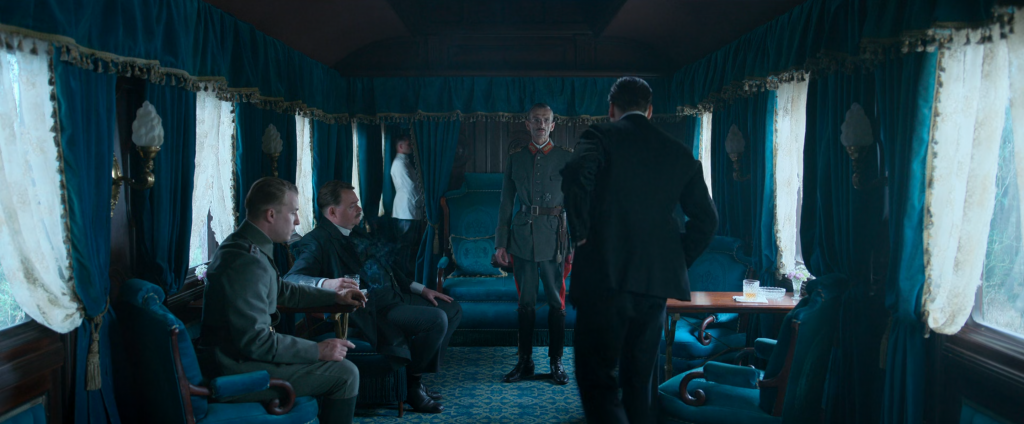
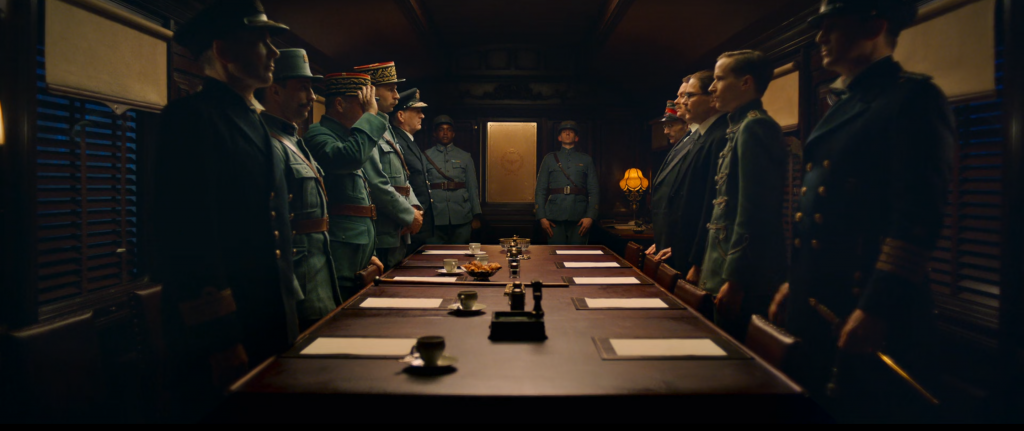
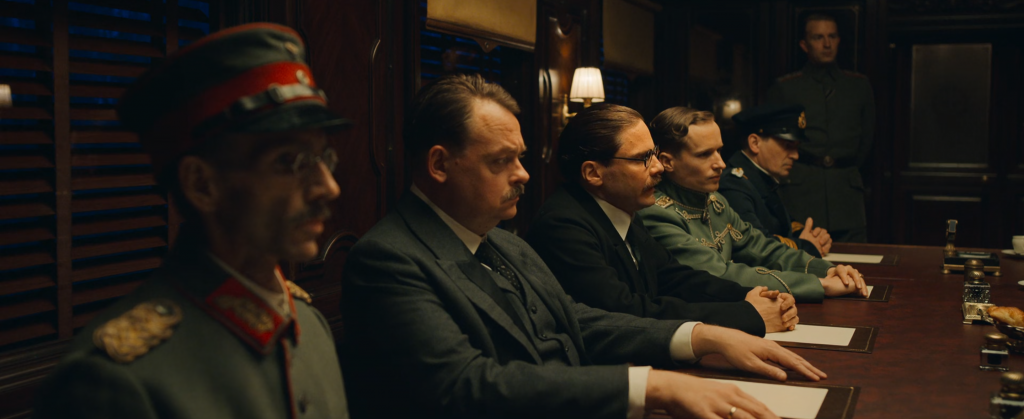
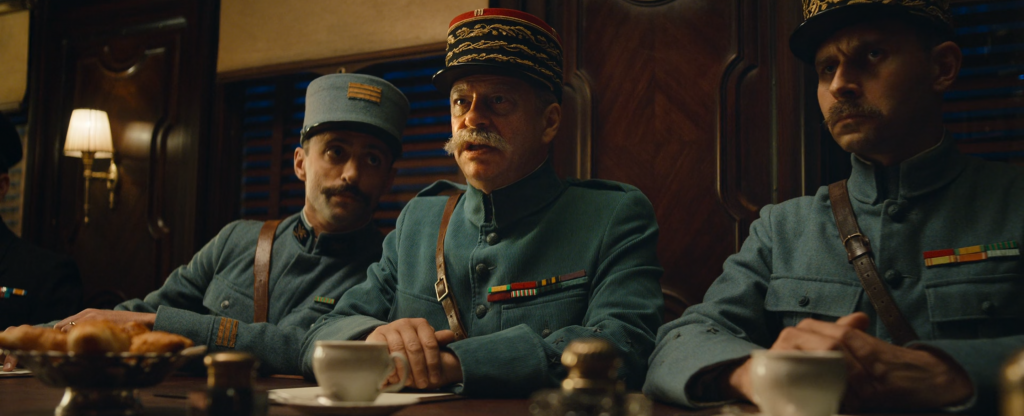
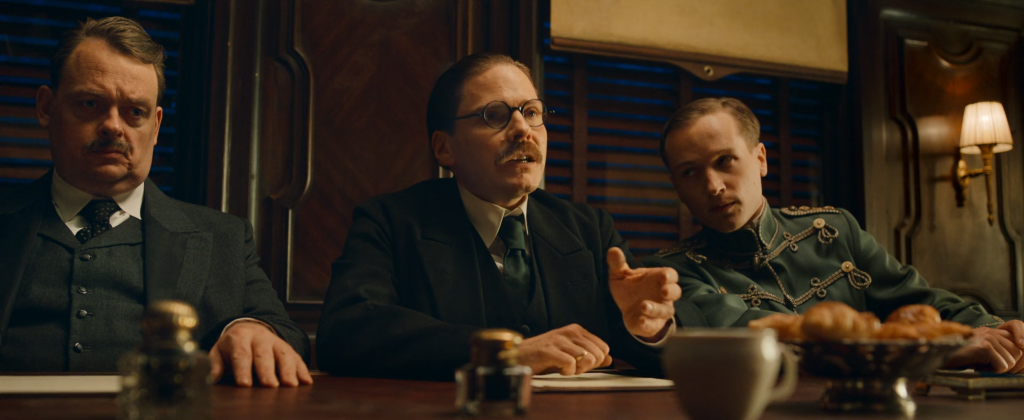
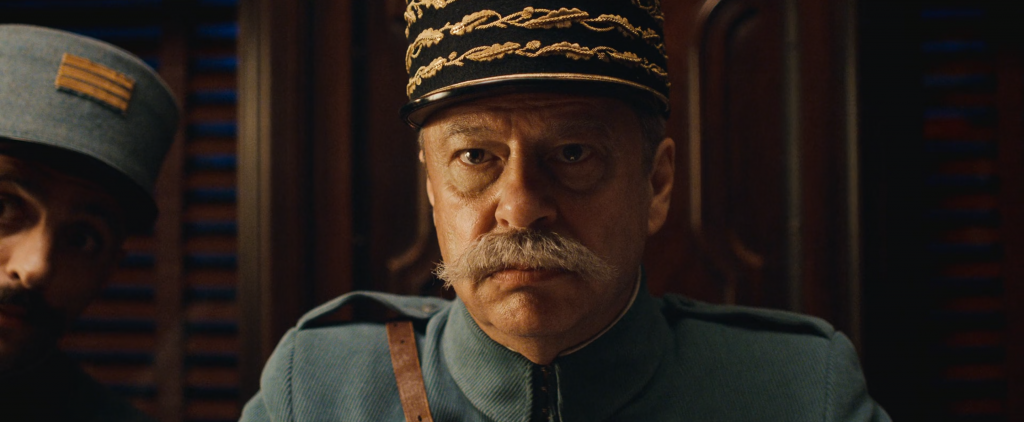
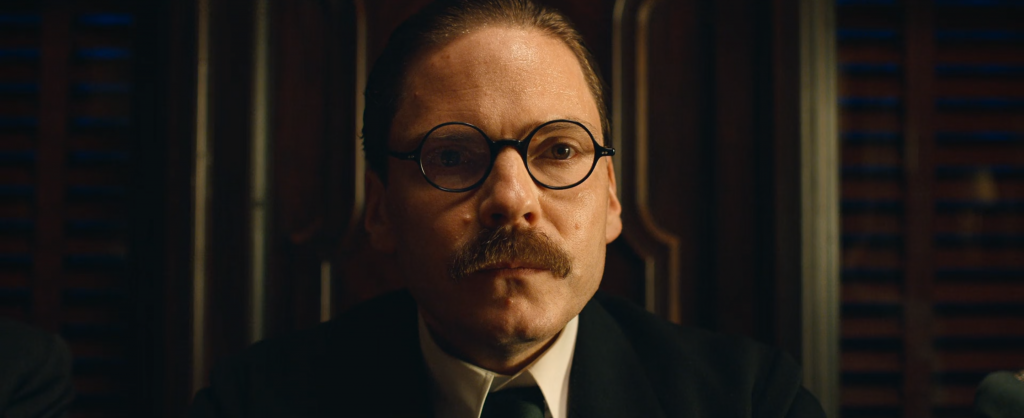
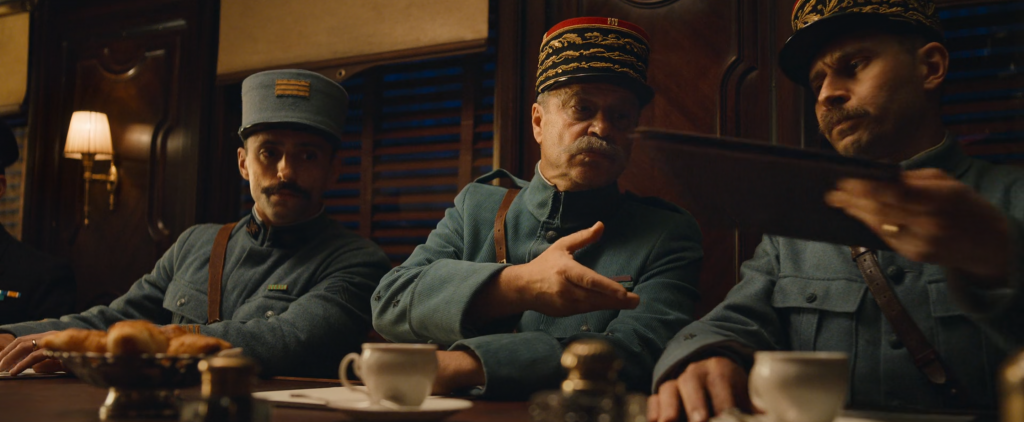
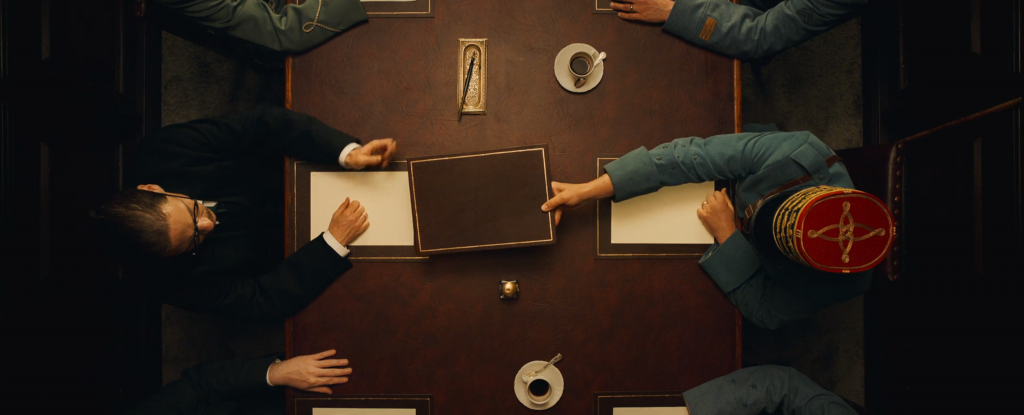
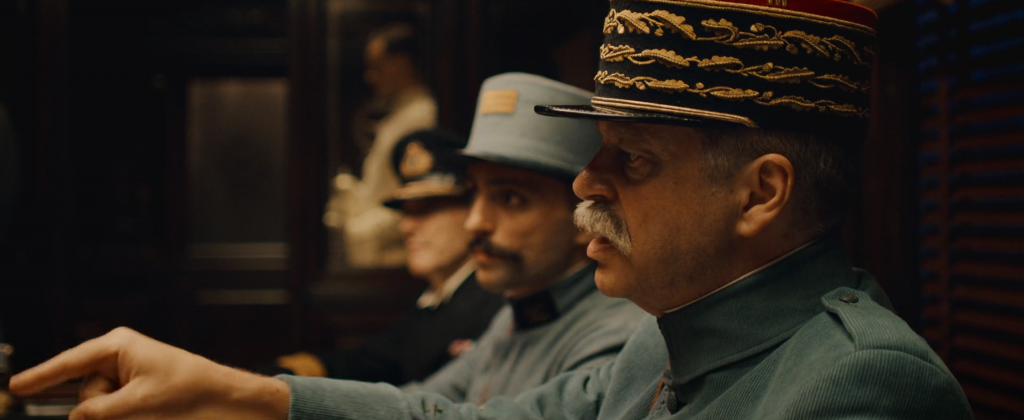
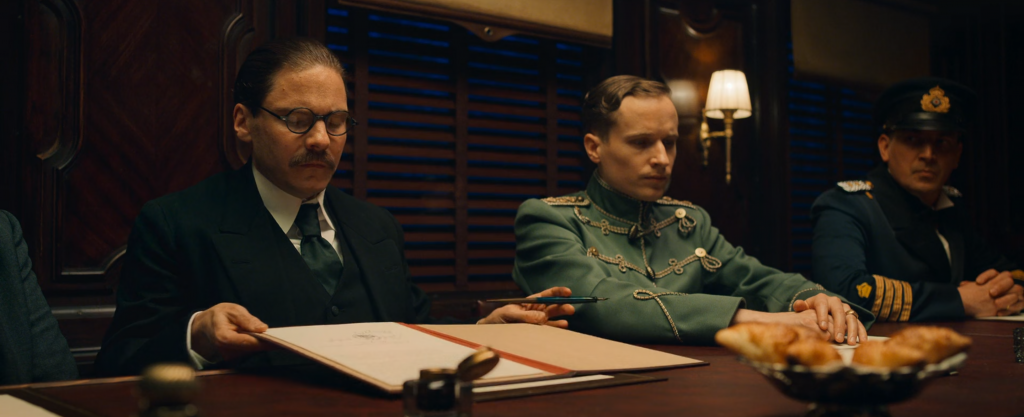
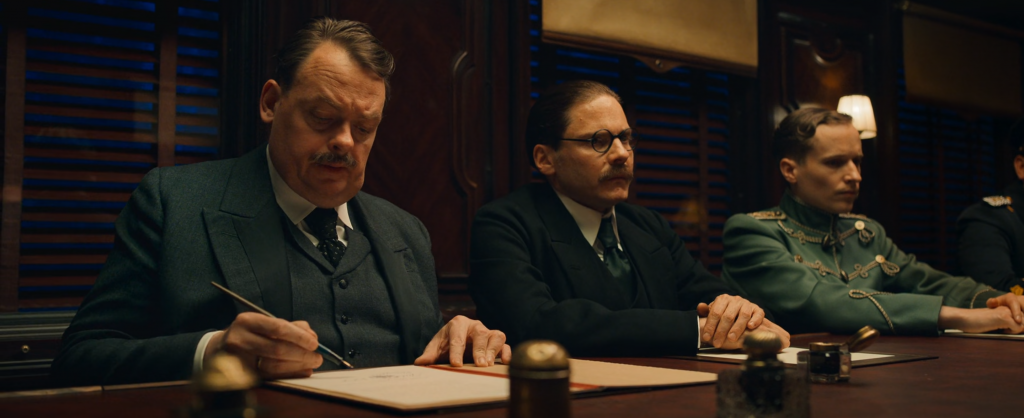

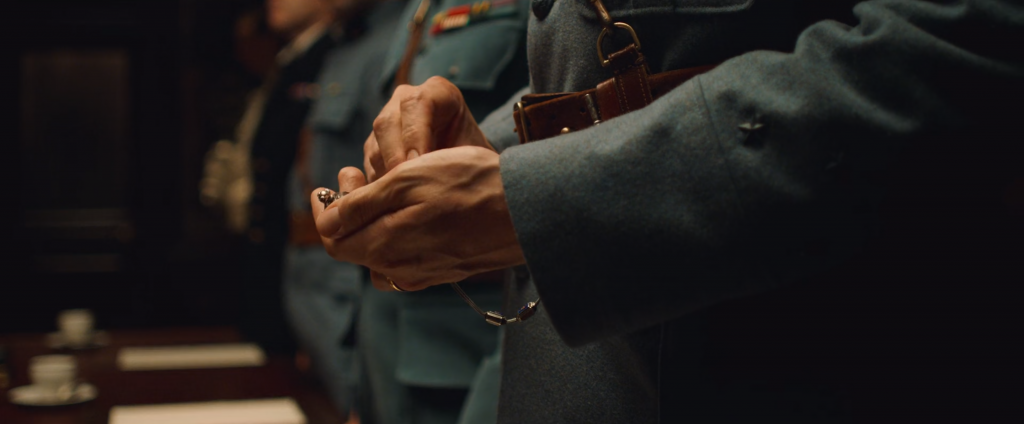
The character that is of German Commander, General Friedrich serves a greater purpose of being a water mark of symbolism throughout this film. While his role is not a dominating one his character is both compelling and polarizing at the same time that serves the greater purpose of driving contempt towards his contradictions. While living in excess of luxury, barking orders from his perch is also suggestive that such figures are removed from the war altogether and is out of touch with the men that he commands. We never see the general in the field with his men, nor is he ever seen engaged in any sort of military strategy as if to suggest he’s actively engaged or shows any empathy, concern for his soldiers doing the fighting or for that matter the wounded convalescing in nearby hospitals. In a sense his character portrayal becomes nothing more than a figure head of indifference who has already given up on the war itself. We see evidence of his resignation and indifference when driving by soldiers who are burying the dead of his own countrymen.
One of the biggest tragedies in all of the war and in the film itself is when an armistice has been finally agreed upon knowing full well that the war would end in a matter of hours. When told of the news that an agreement to end the war has been reached his reaction was one of indignation and disgust that revealed just how much contempt he had for his political leadership of his own country for negotiating such a horrible treaty. However what is even more contemptible and horrifying is the fact he is willing to send more soldiers to die because his ego and pride is wounded and out of spite towards his enemies decides to order his soldiers to partake in one last charge to inflict more pain and suffering for extra measure. His decision not only reveals his total disregard for his soldiers lives but also is evident he has sadomasochist traits within his character that he would have such disregard for the sanctity of human life itself. It is the one decision despite an armistice being signed and an hour from it taking effect is emblematic of the sociopath tendencies that such leaders possess for which the tallies of costs of war is wagered without much considerations. The mere spectacle of charging bayonets for the purpose of satisfying a vendetta is one that suggests a bitter pill that the Germans are forced to swallow is not without costs inflicted upon its enemies. Humiliation to such standards of accepting defeat is one that will come back to be revisited once again is the symbolism being conveyed in the waning moments of the conclusion of “The Great War” at such a terrible price.
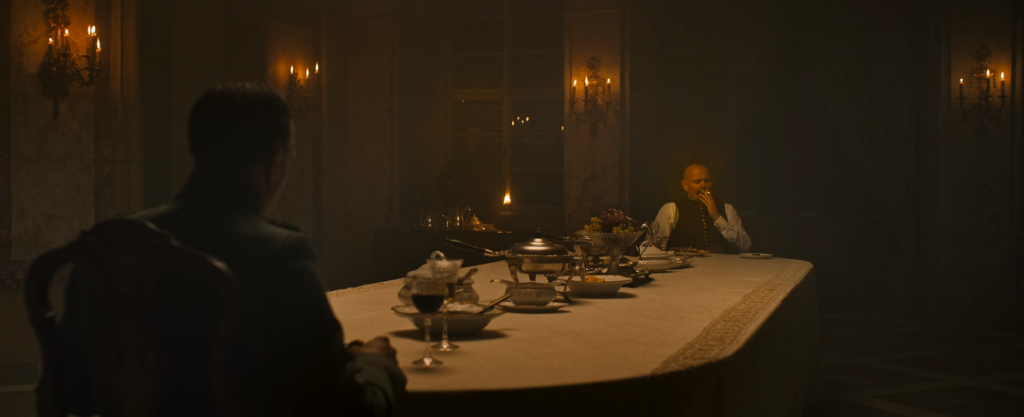
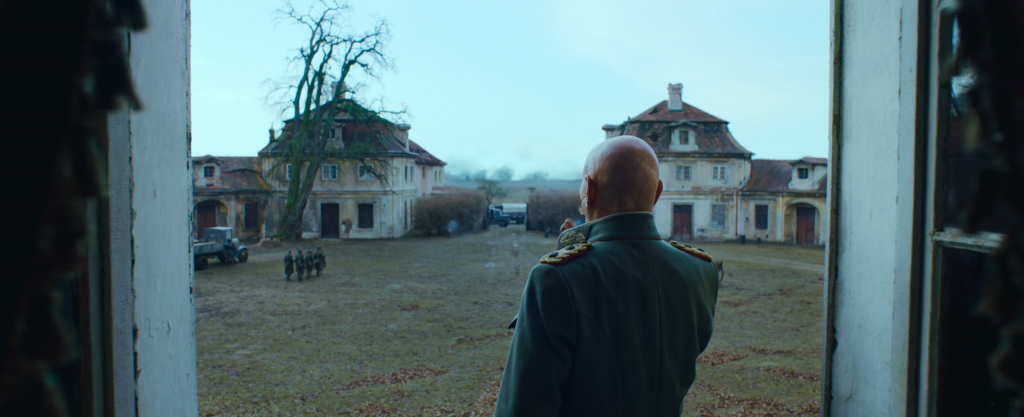
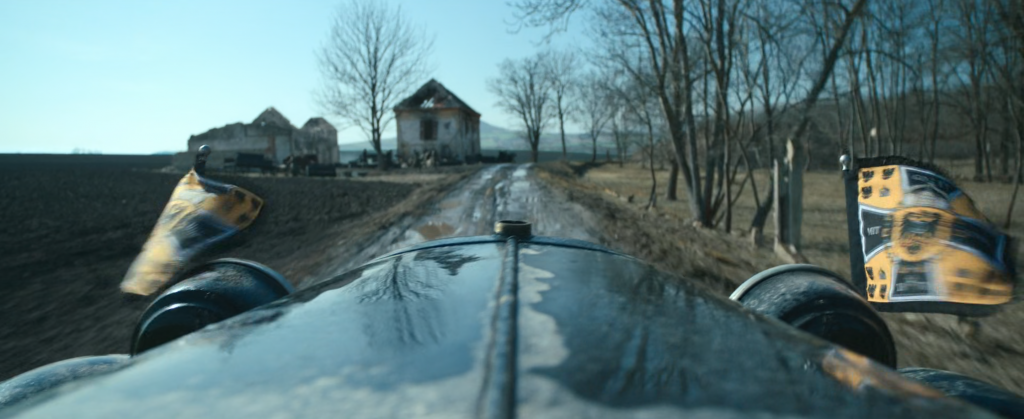
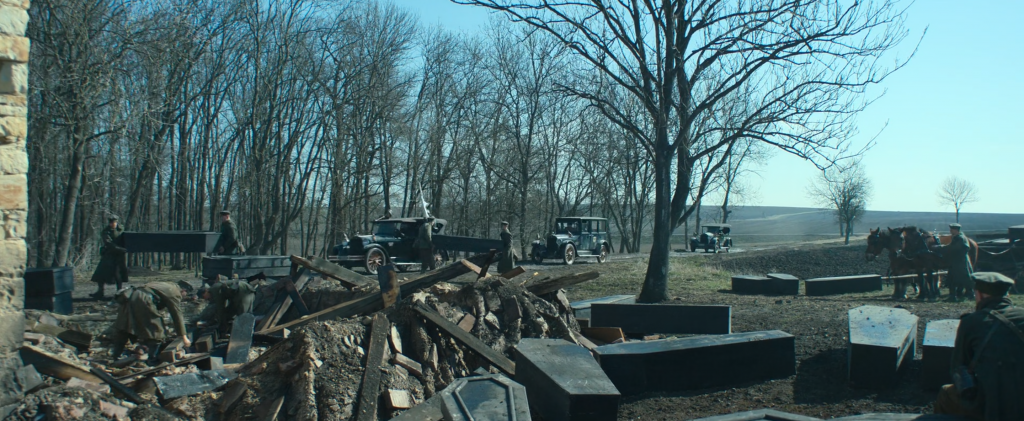
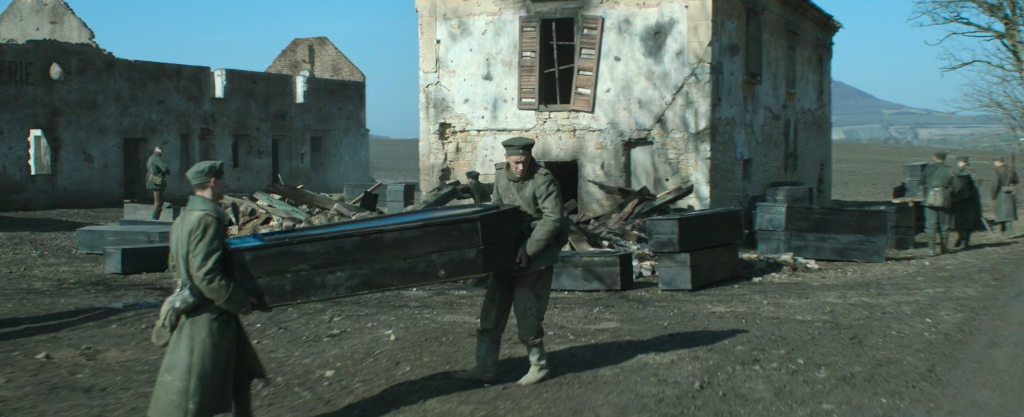
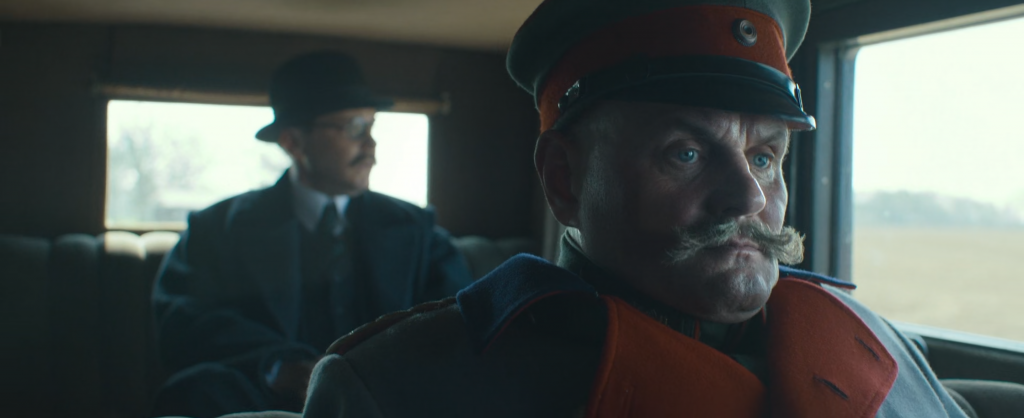
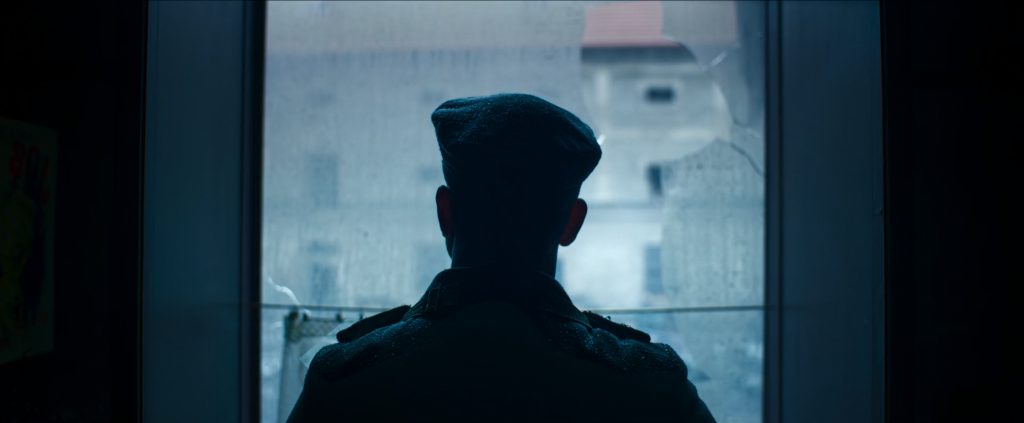
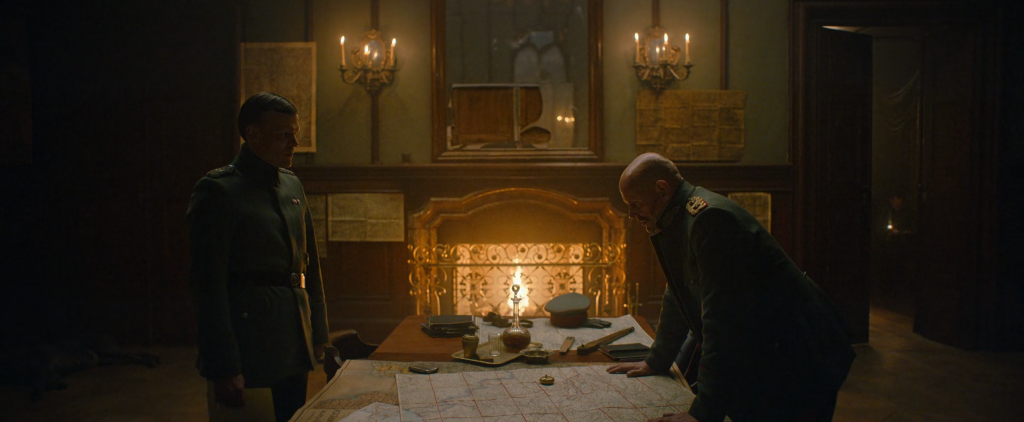
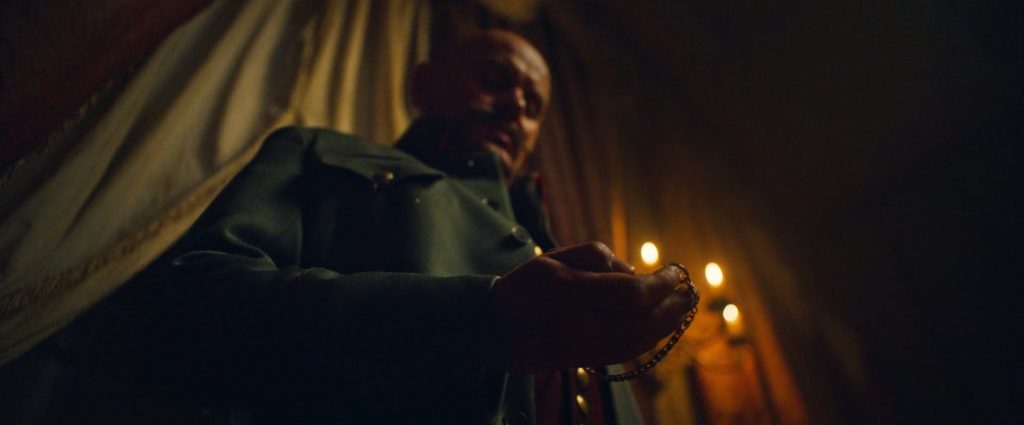

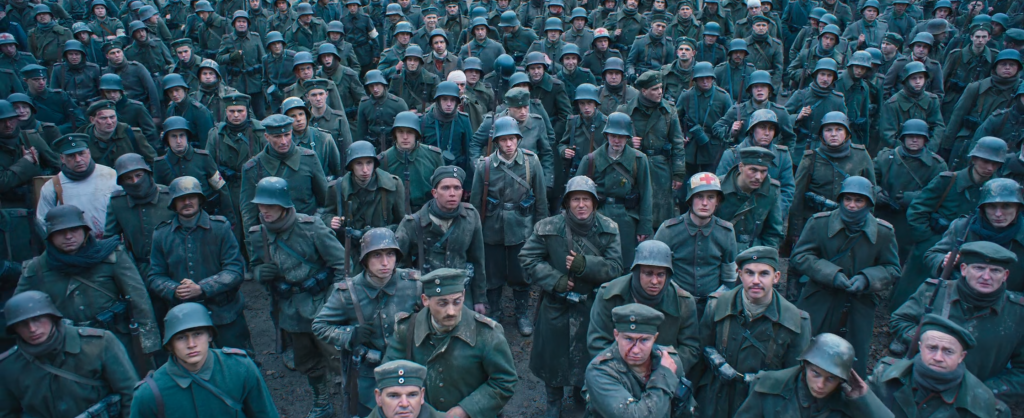
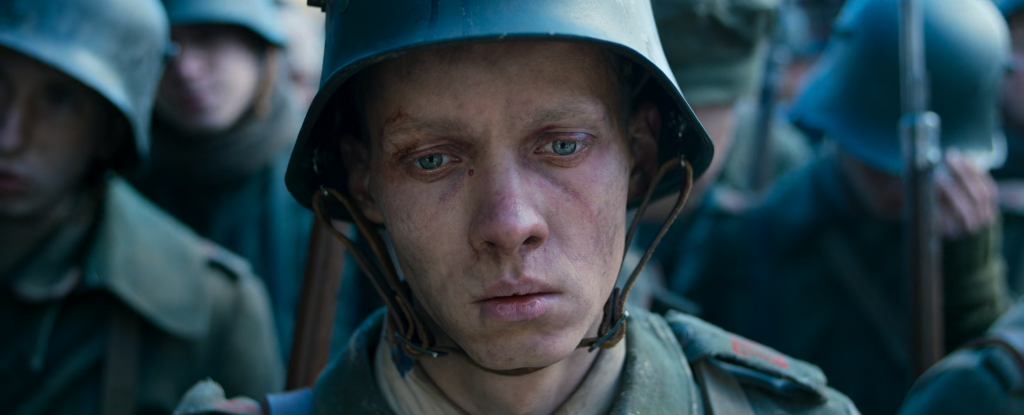

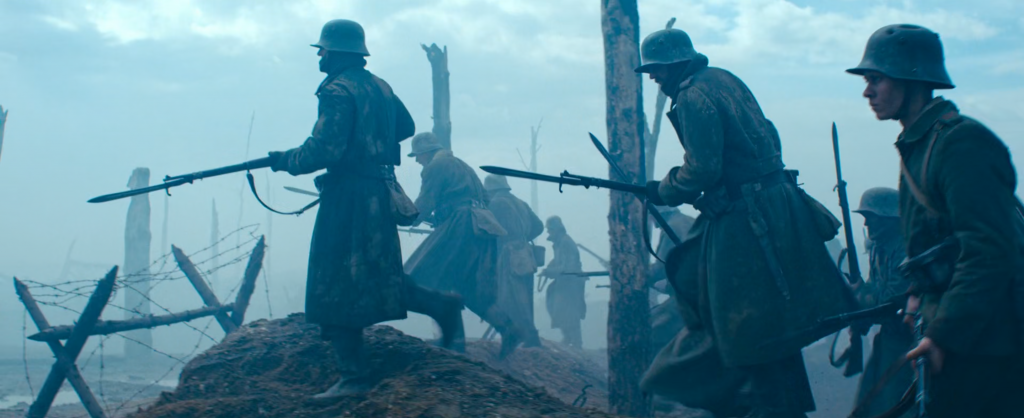
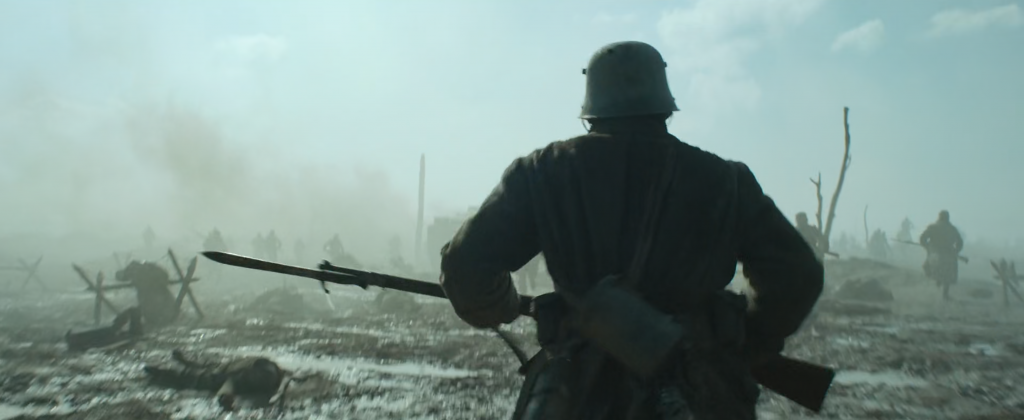
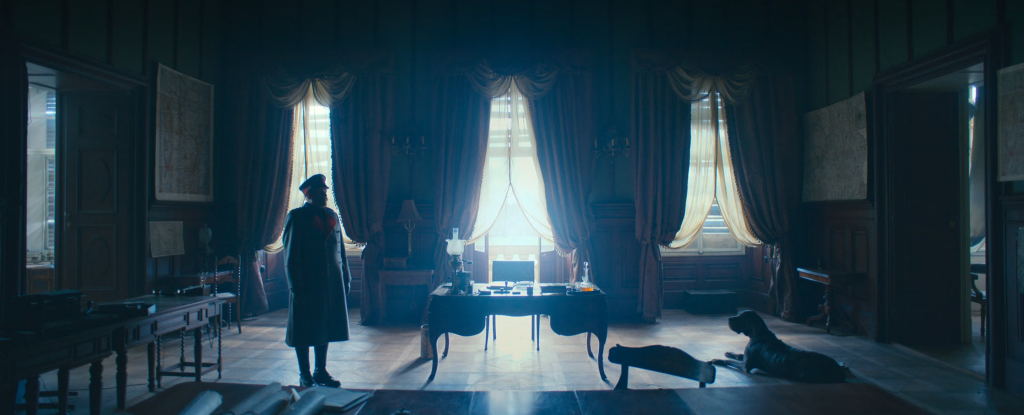
The timing of this film’s release seems to be hinting at a moral pause of current day discourse when the world is dealing with multiple conflicts with various nation states; in particular Ukraine and Russia’s ongoing military strife, would suggest that humanity is about to make the same mistake by repeating history again. This film certainly depicts many symbolic gestures indicating that it goes much deeper than being just another war film but one that evokes an emotional appeal to the senseless acts of conflicts that cost so many lives beyond consoling the ones who are forced to deal with its aftermath. Perhaps watching such films as these serves a purpose to remind the public about such lessons from the past.
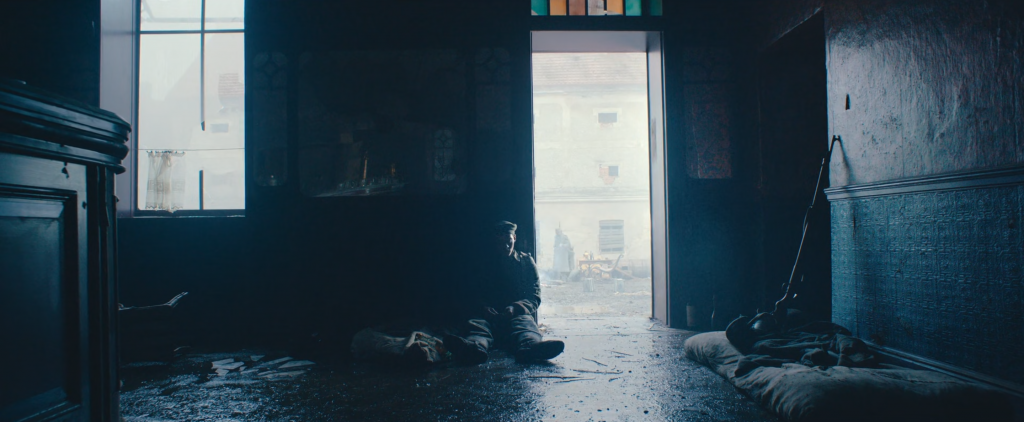
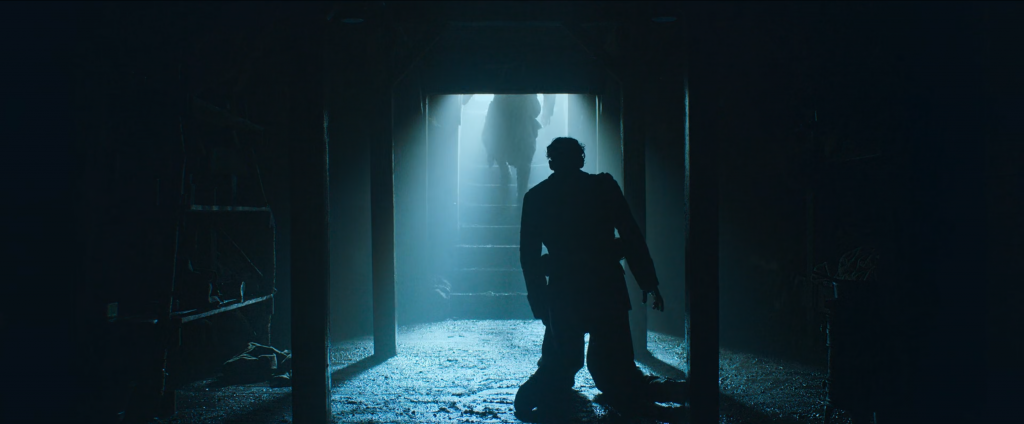
This film has it all: great story, great cinematography, great acting and produced not by the usual suspects from Hollywood’s club members, but with the exception of Daniel Bruhl by no name accomplished actors (at least to American Audiences) that can be seen as everyday average humans struggling with inner conflict and the need to survive a war that was lost before it began; to which brings a powerful sense of realism to the screen very rarely seen in movies today.
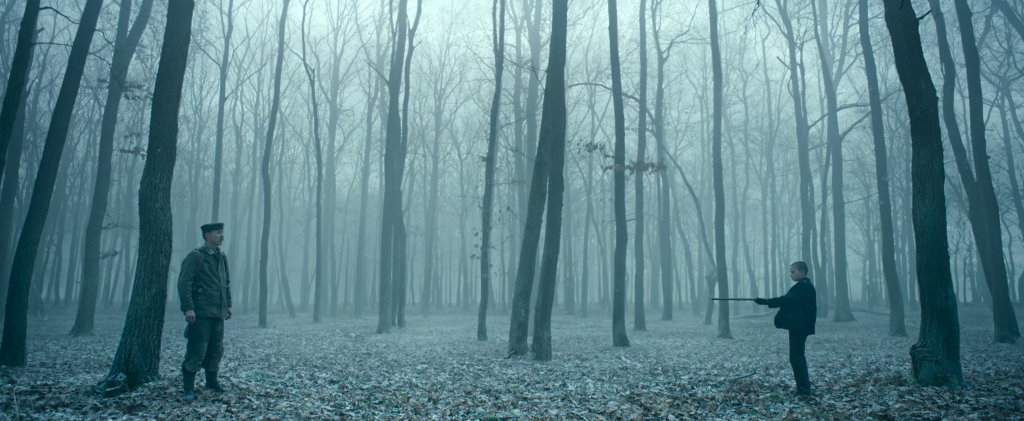
The unnerving soundtrack that is used throughout the movie amplifies this films intensity throughout it as it accentuates its terrifying experience where the ravages of war weighs on one to question their own moral aptitude for understanding humanity’s cause and effect of justified homicide against one another. It reminds us that war leads to nowhere good in the end only a sorrowful lament of the lives lost and what could have been had they lived to realize their dreams and had offspring to carry on their names.
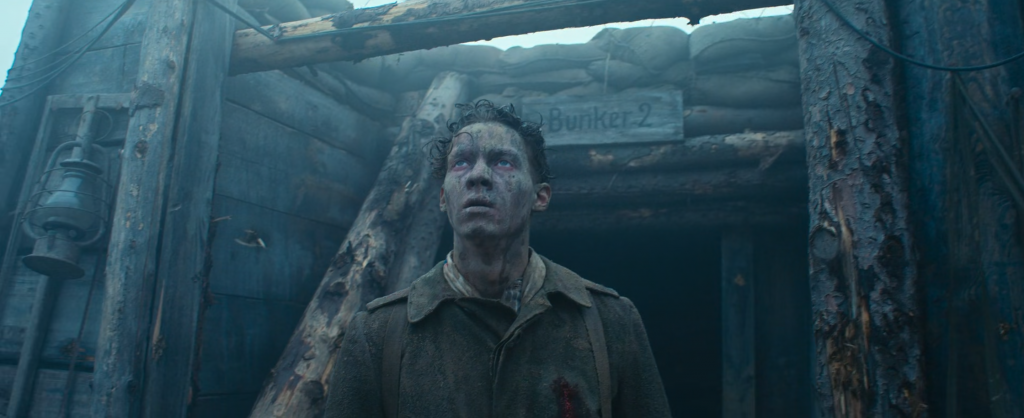
This film in all estimations should be considered the film of the year! No other film produced in 2022 comes close to reaching the level of story telling, cinematography in such riveting fashion that leaves lasting impressions to last a lifetime.



